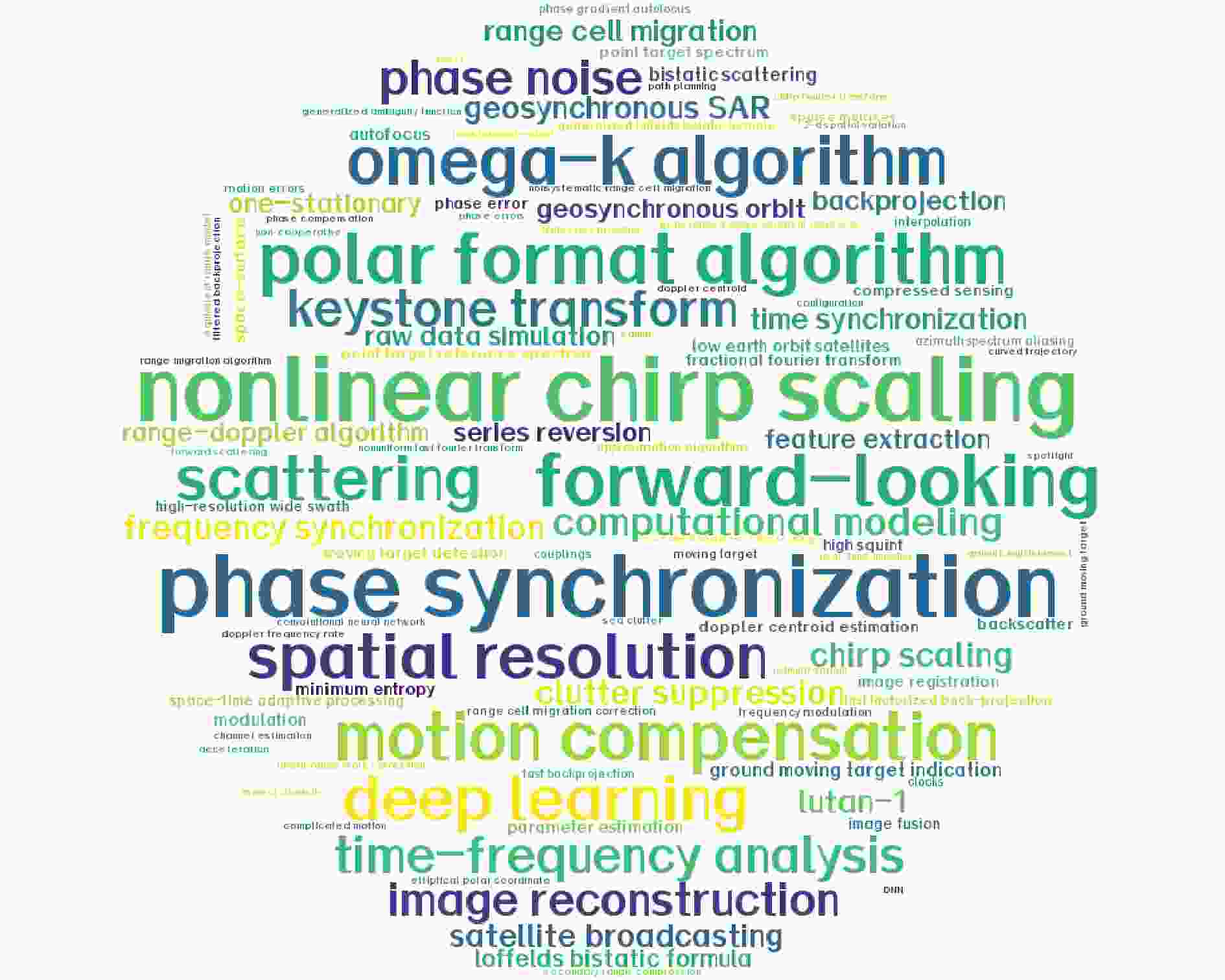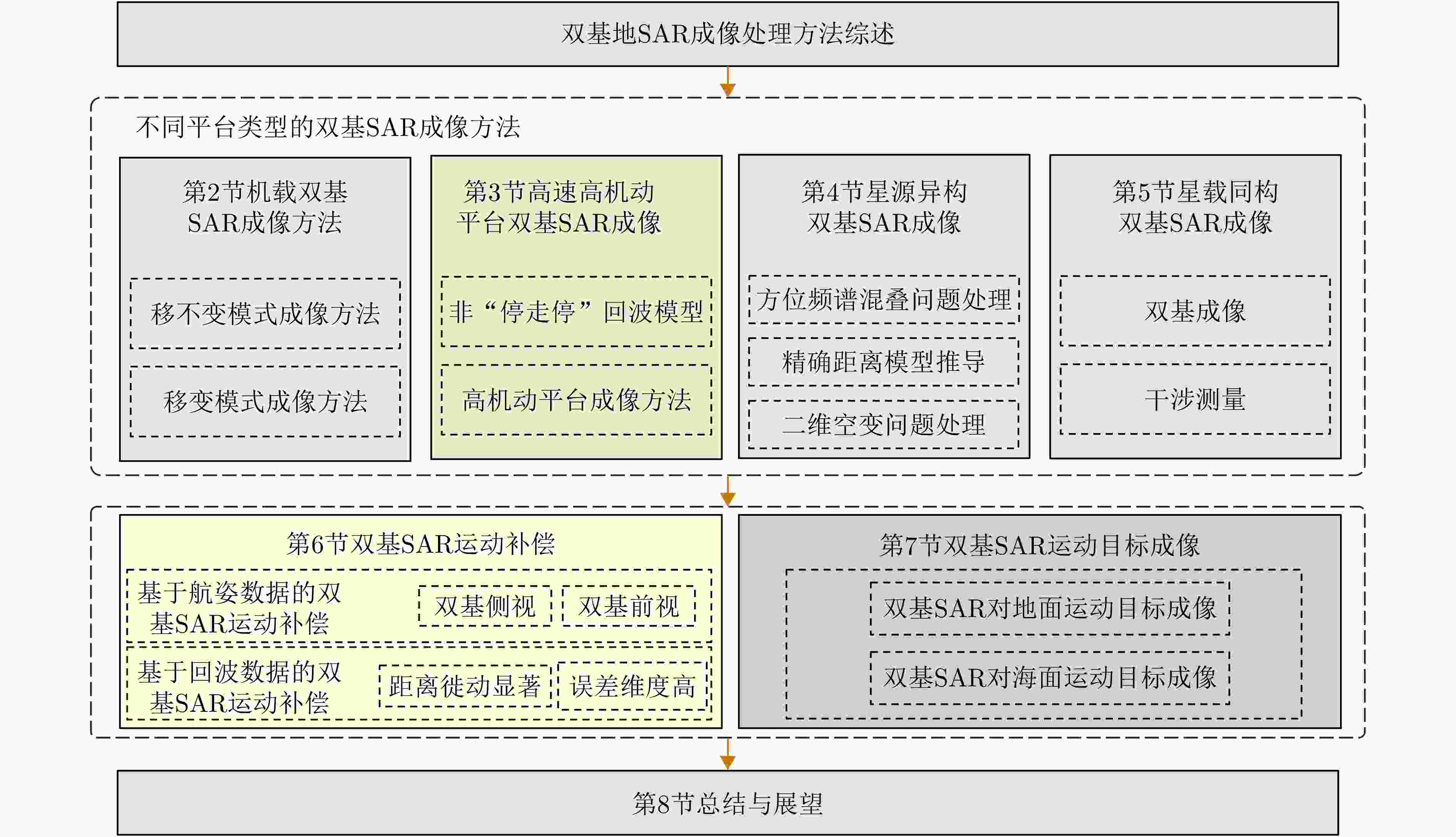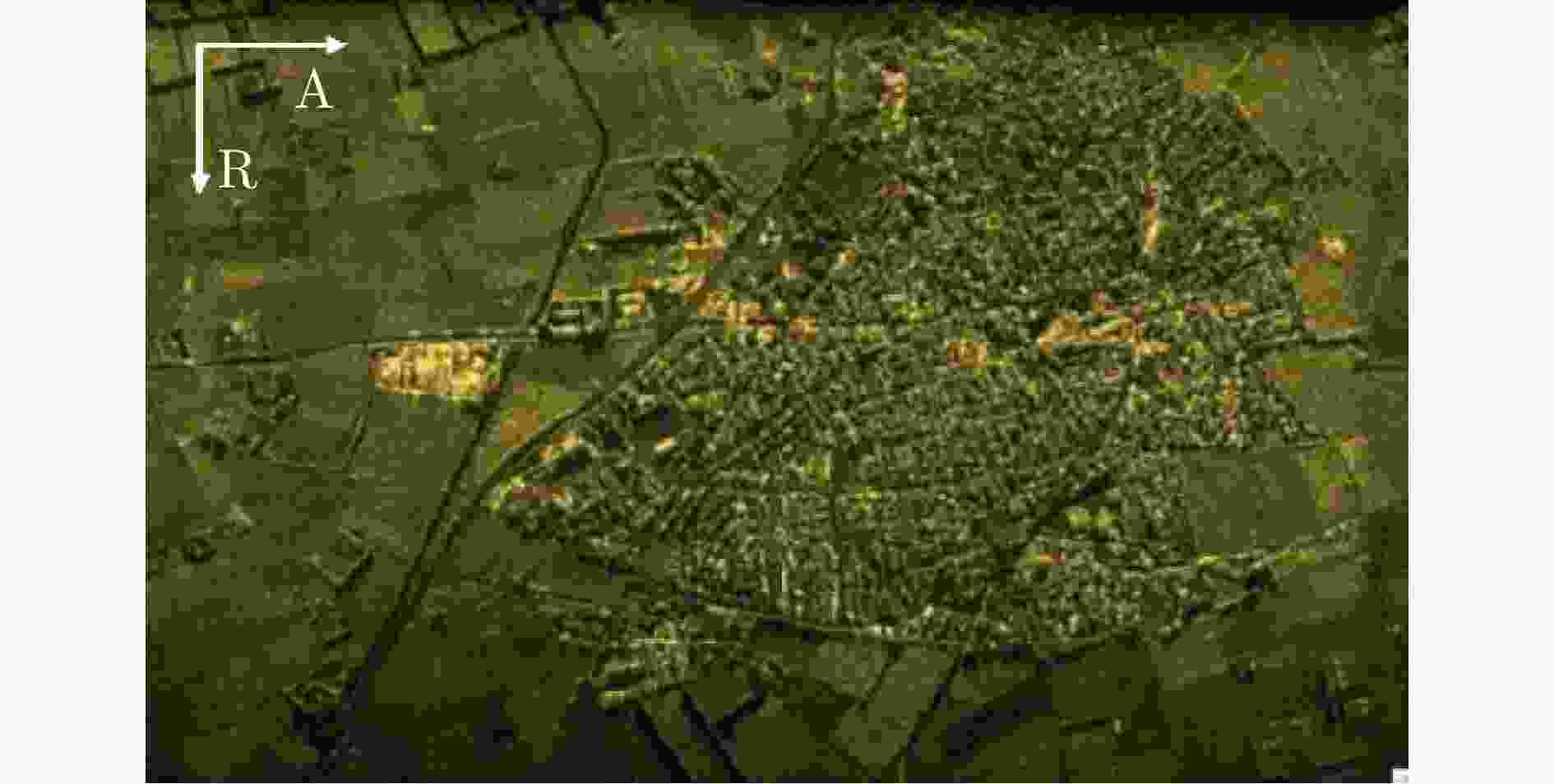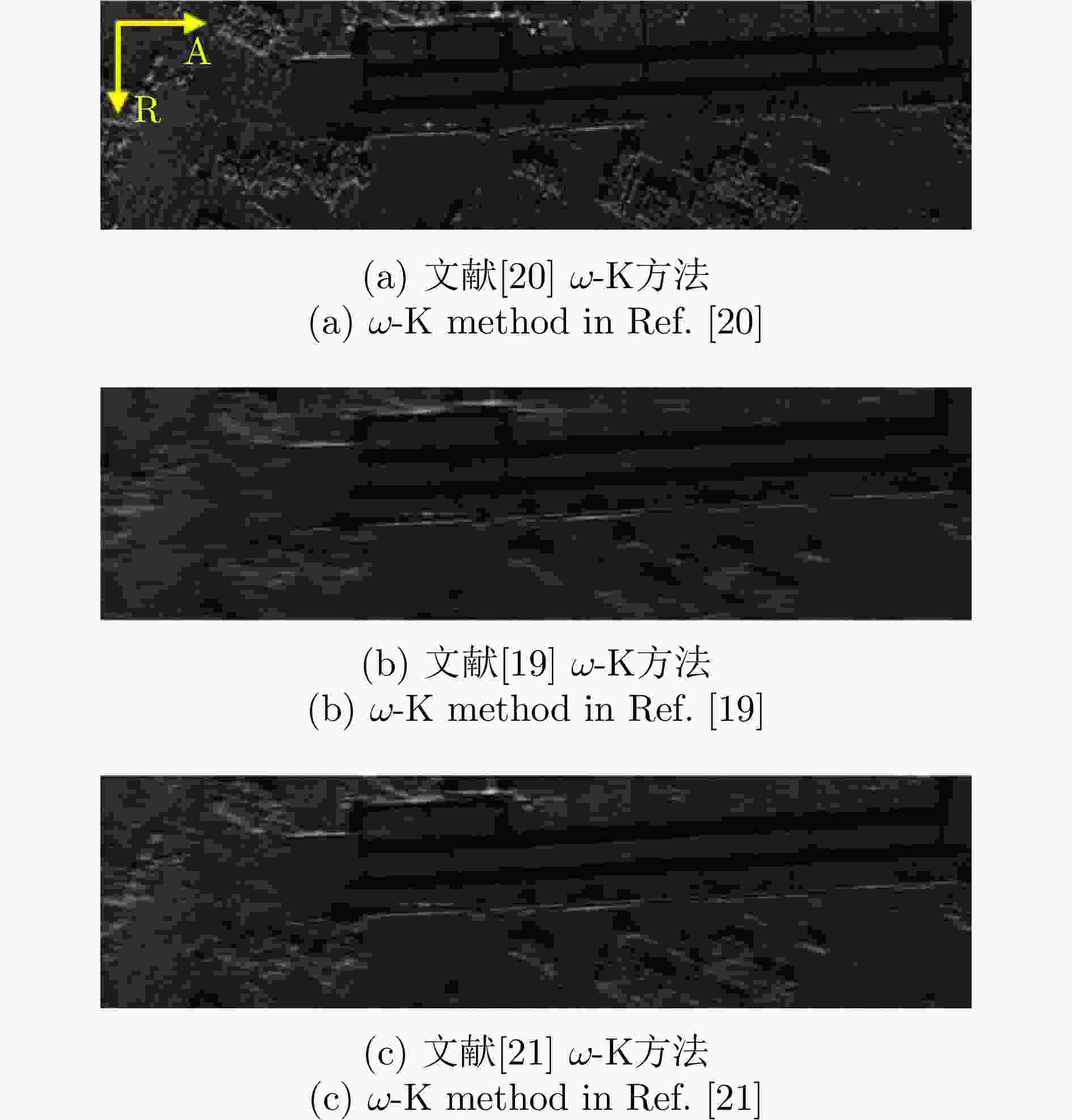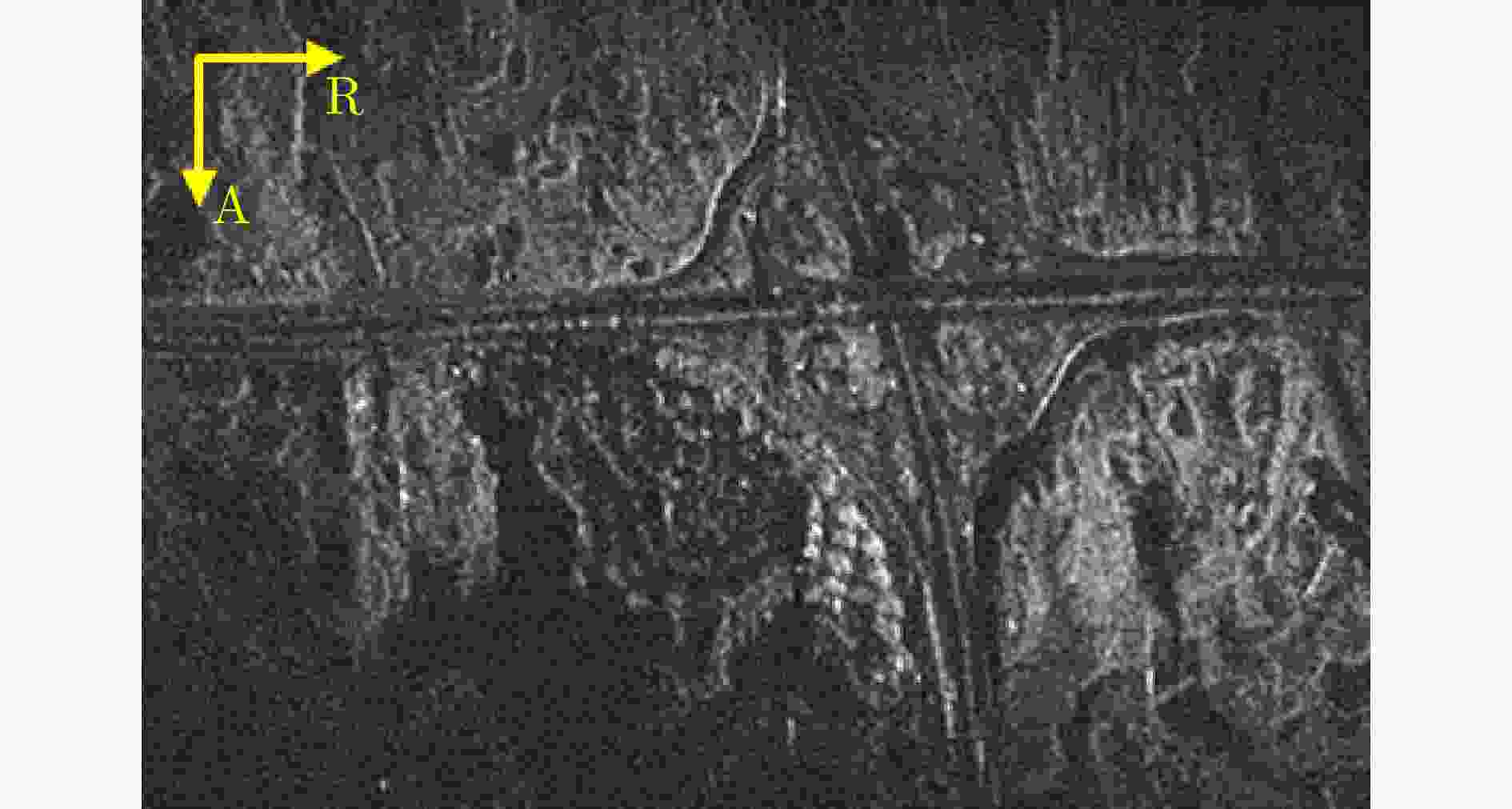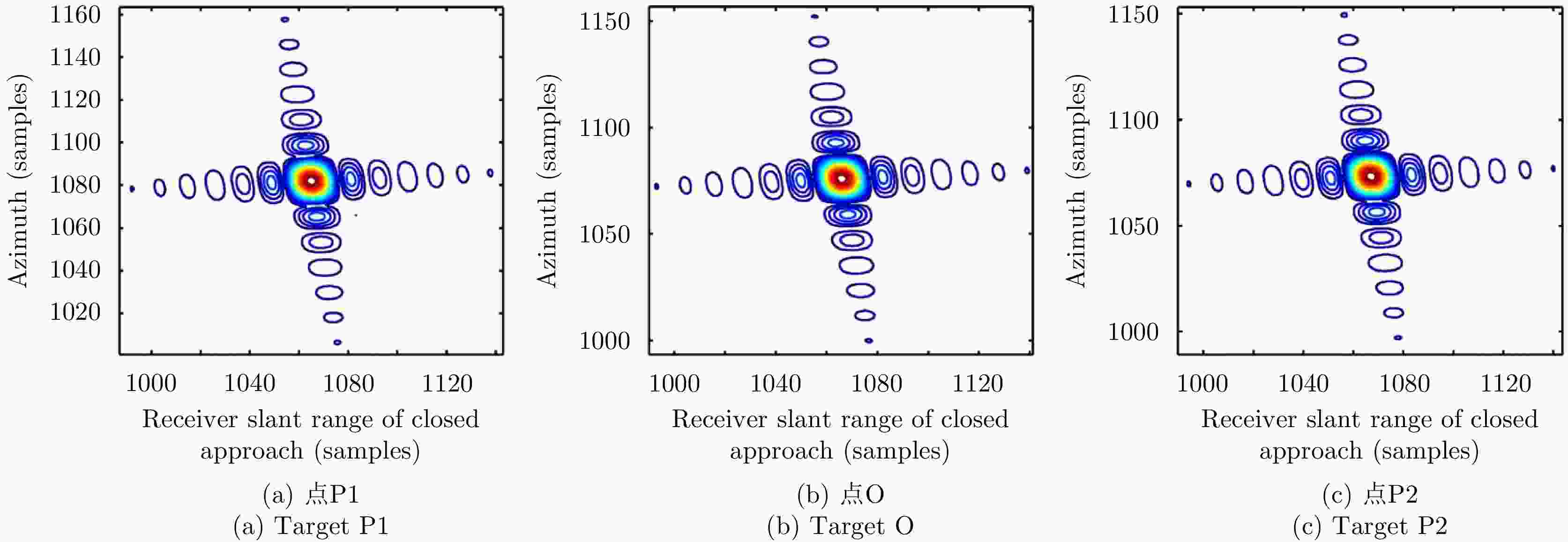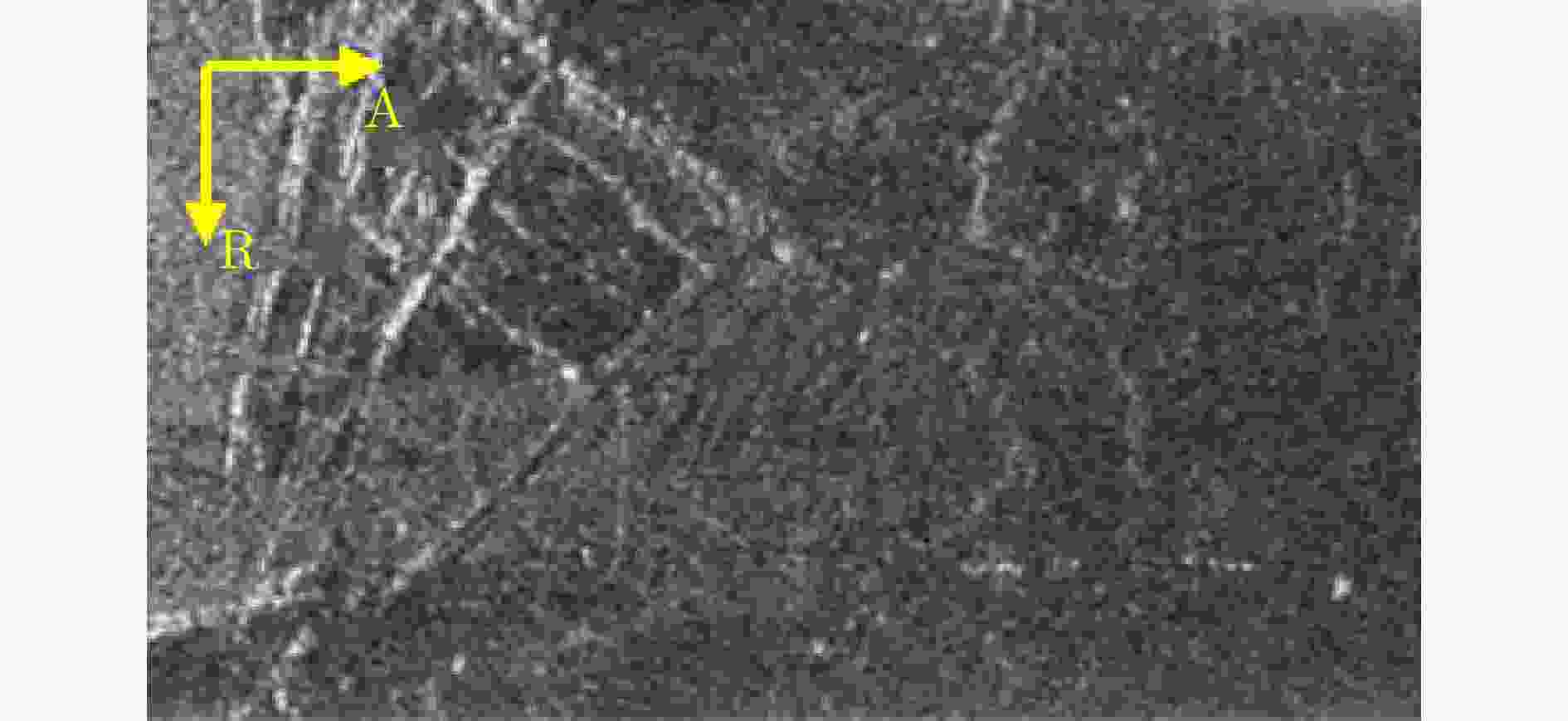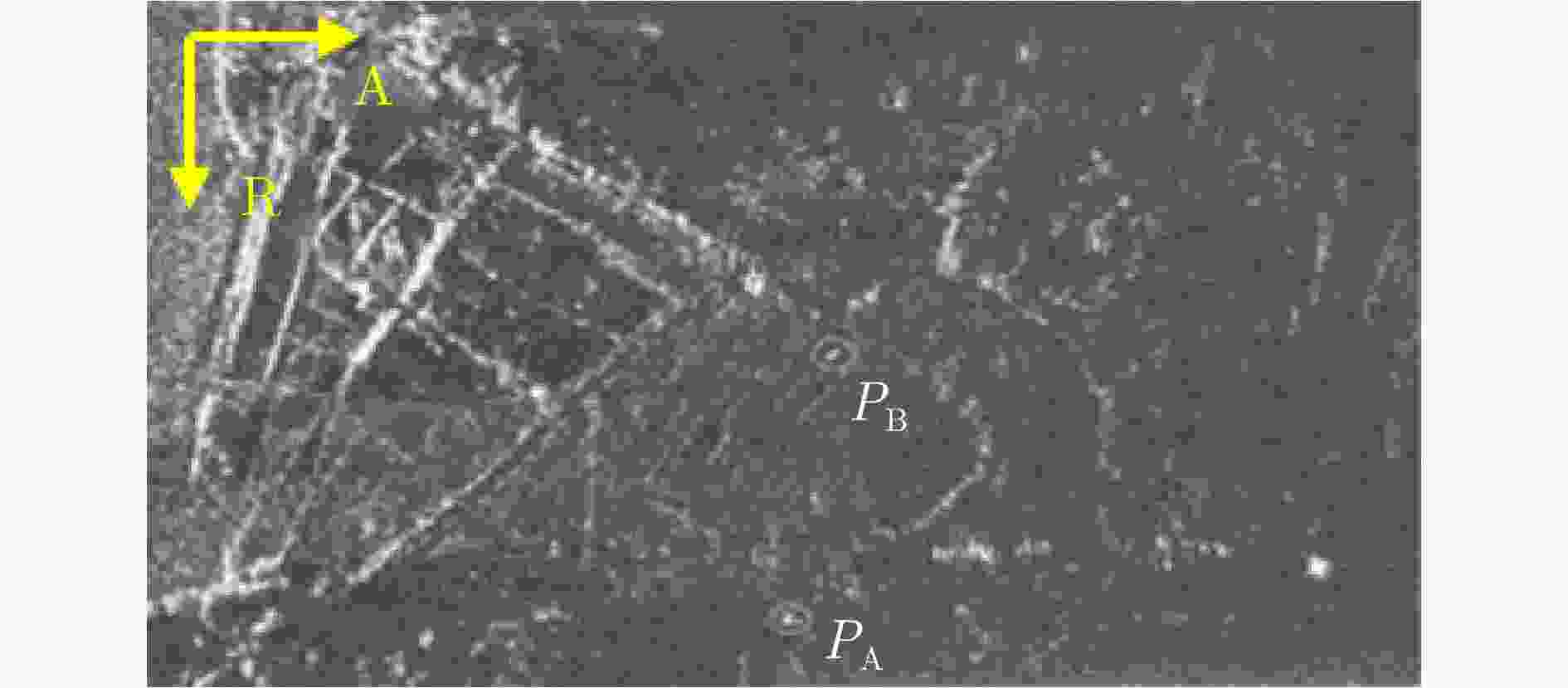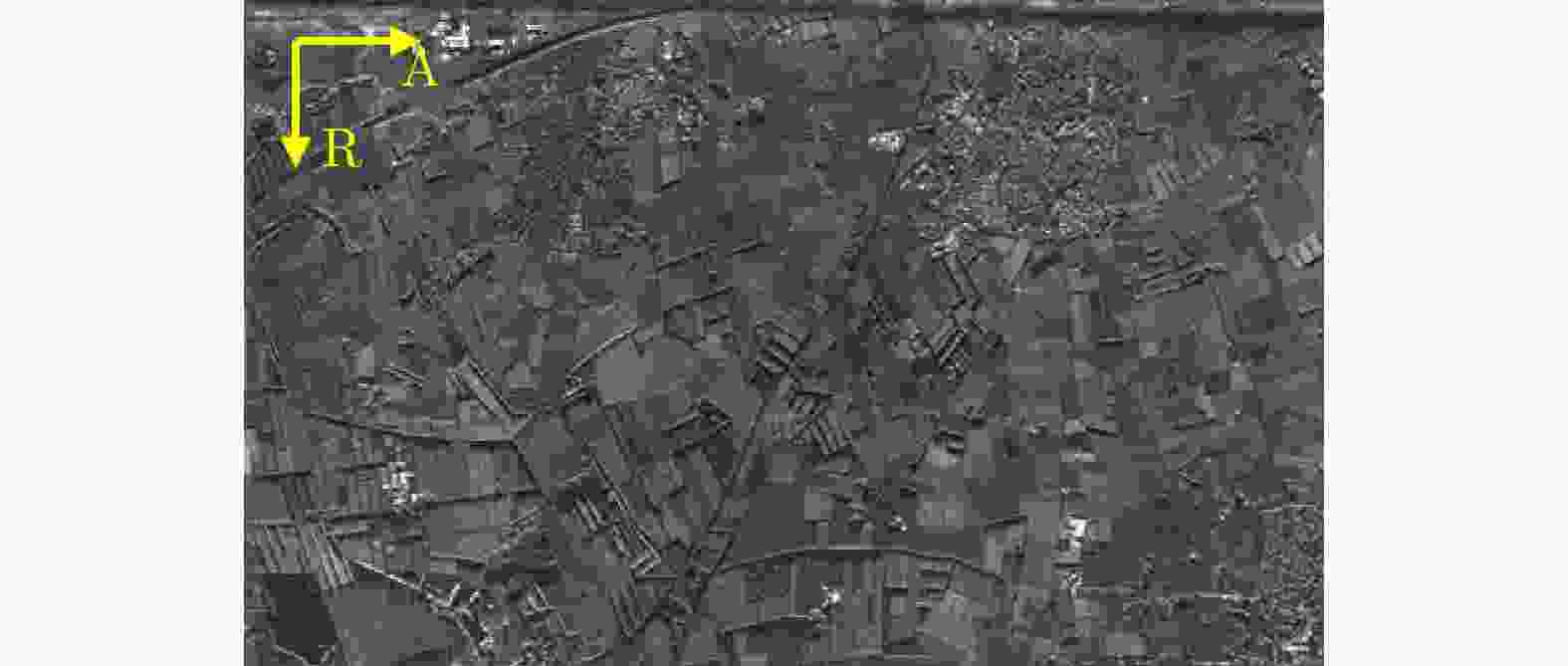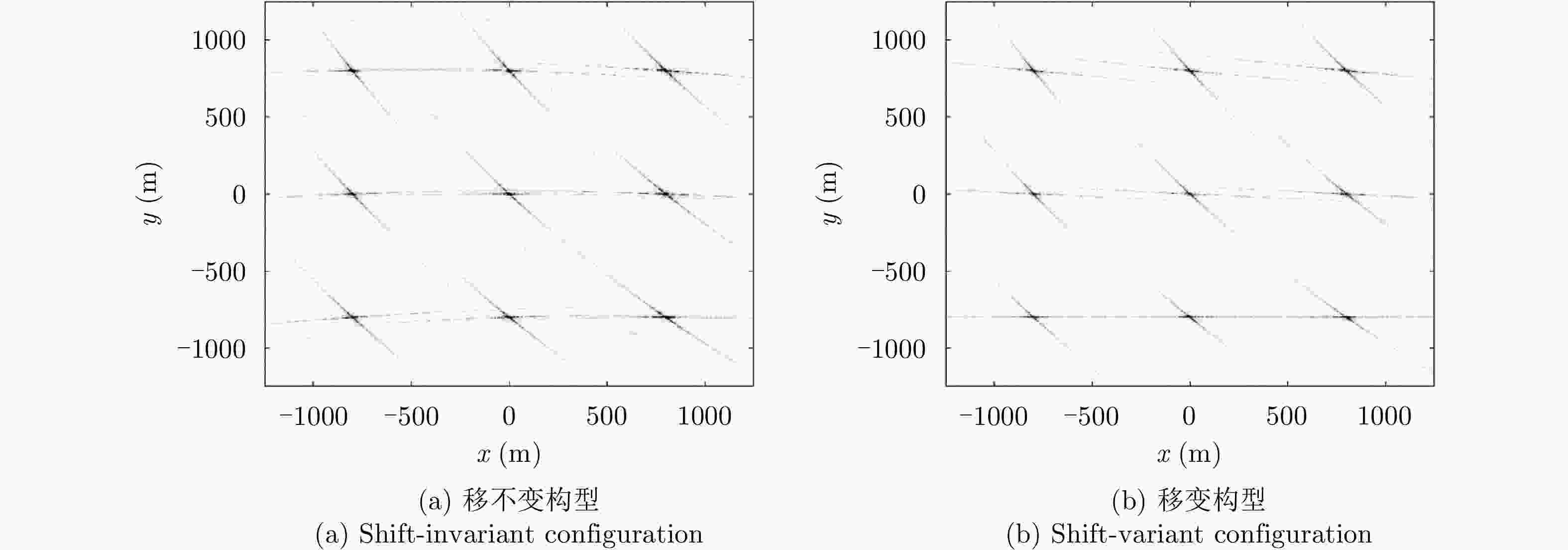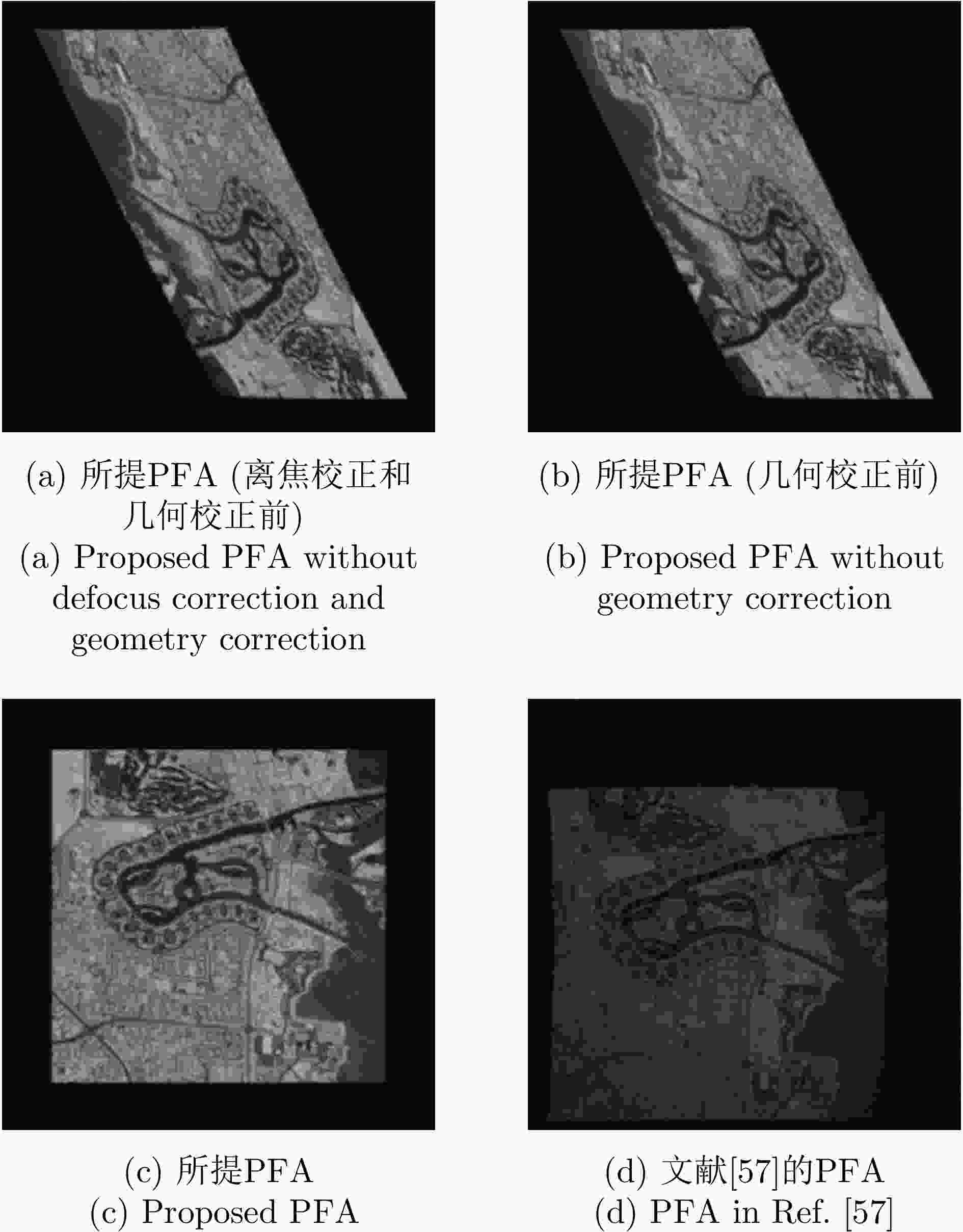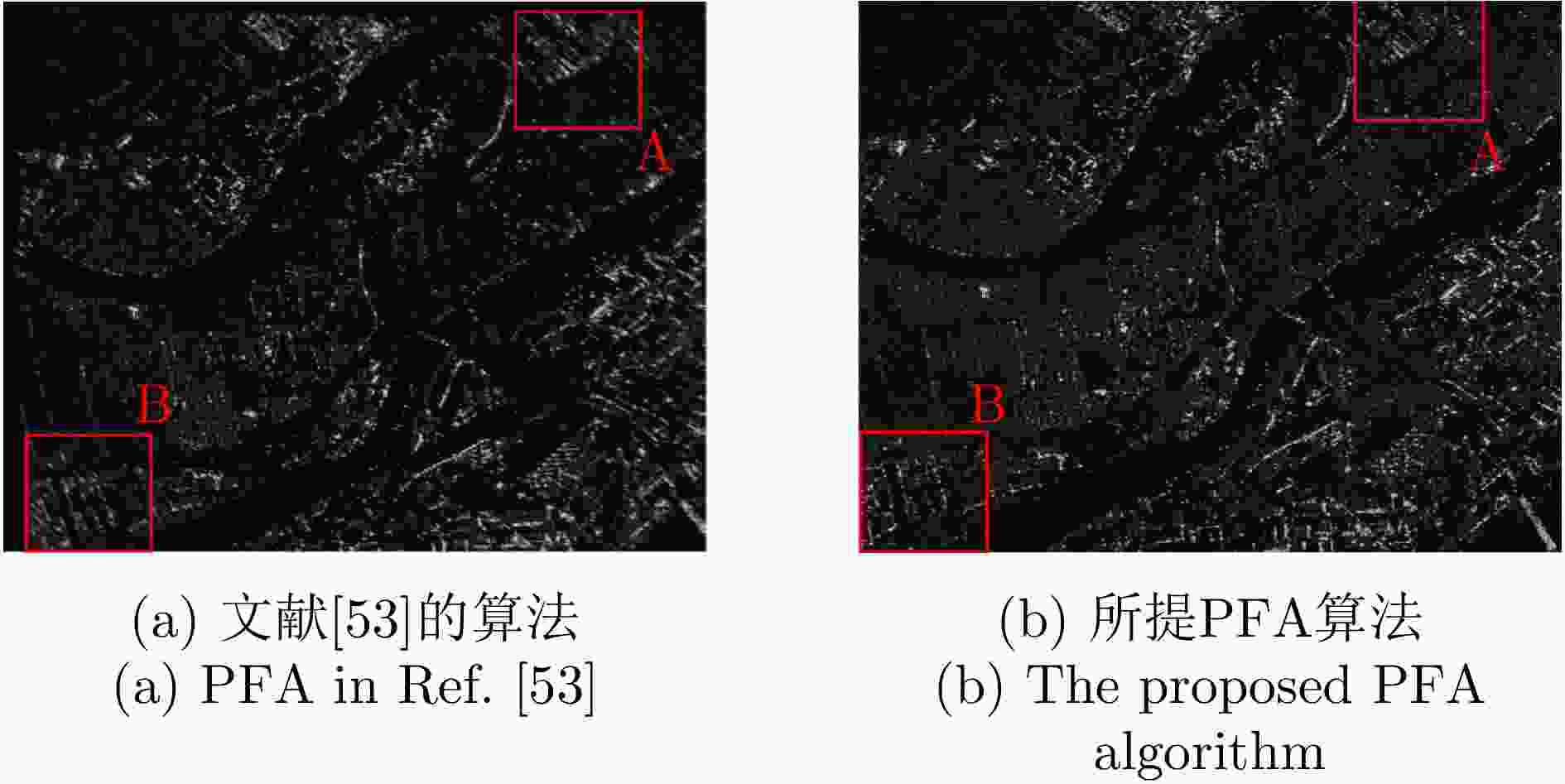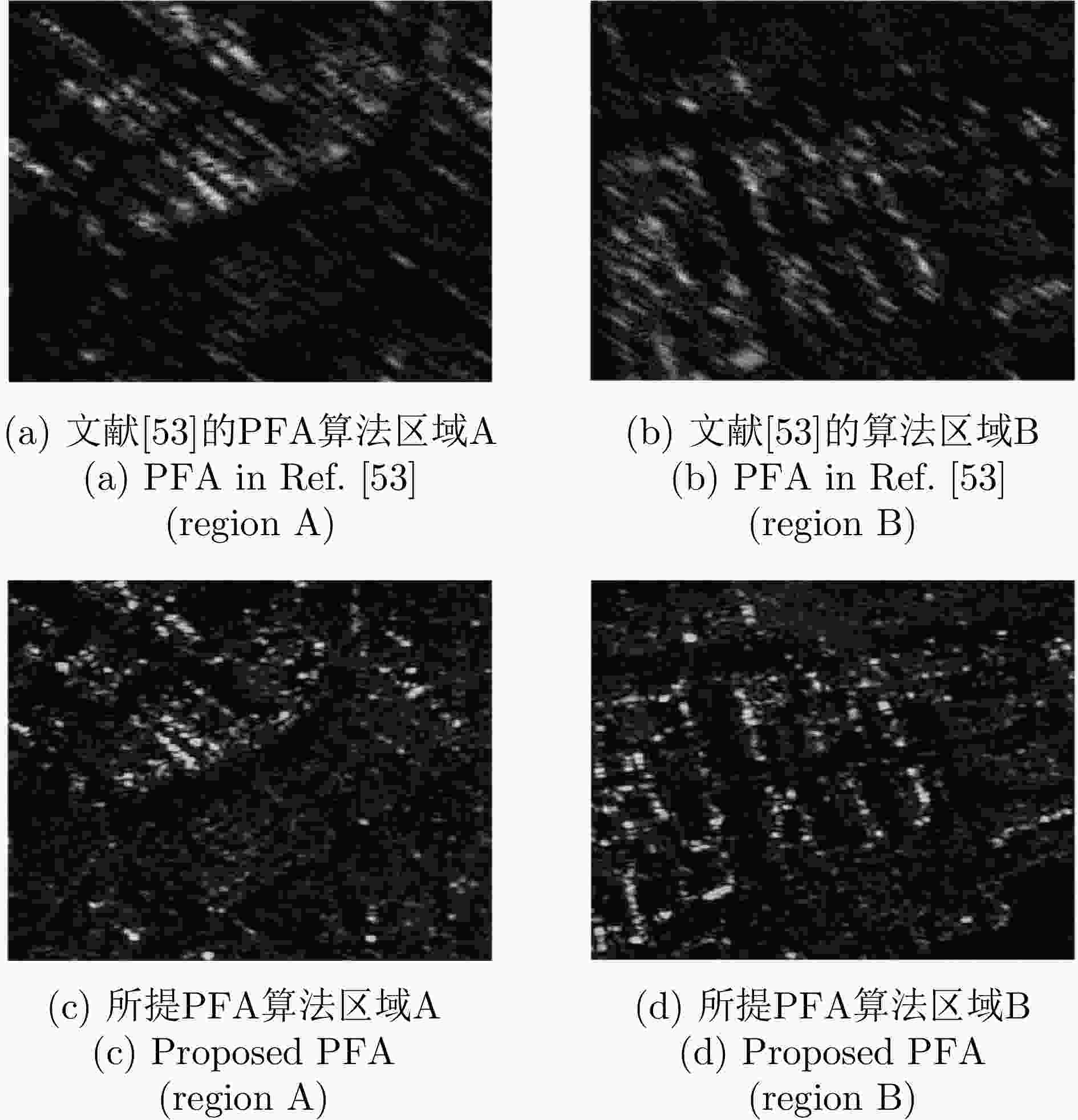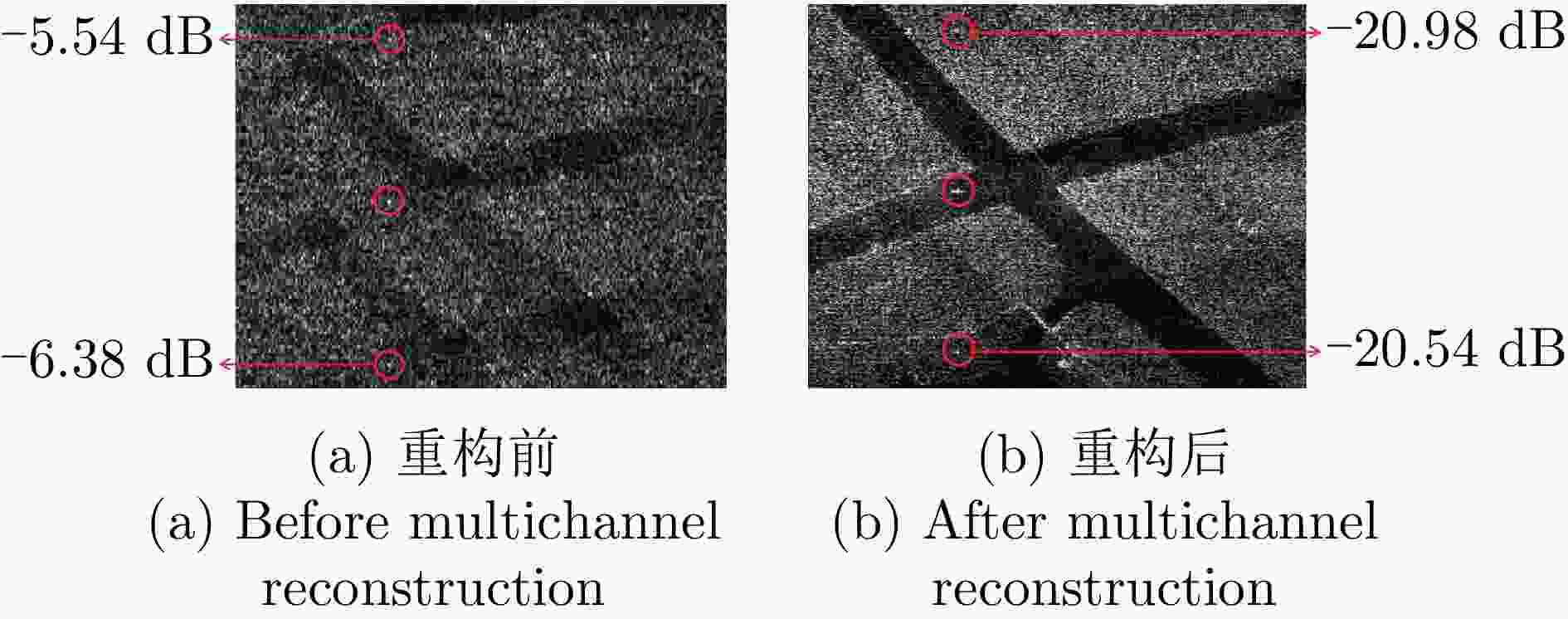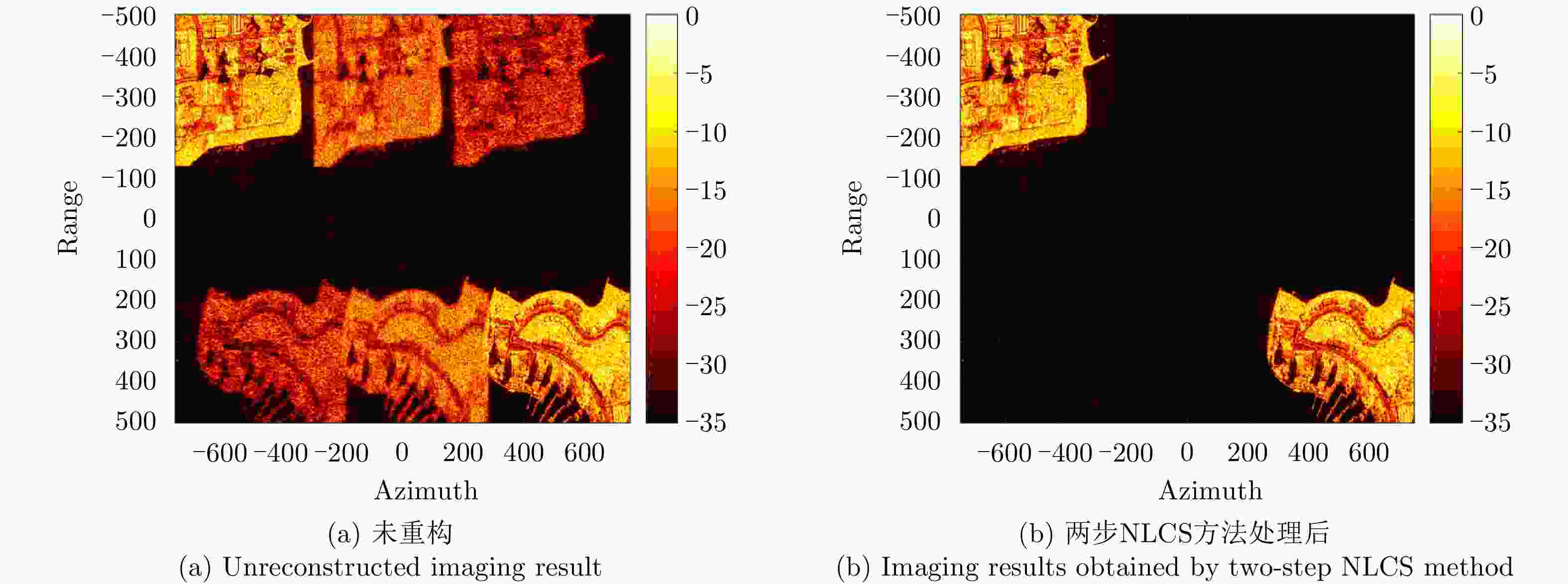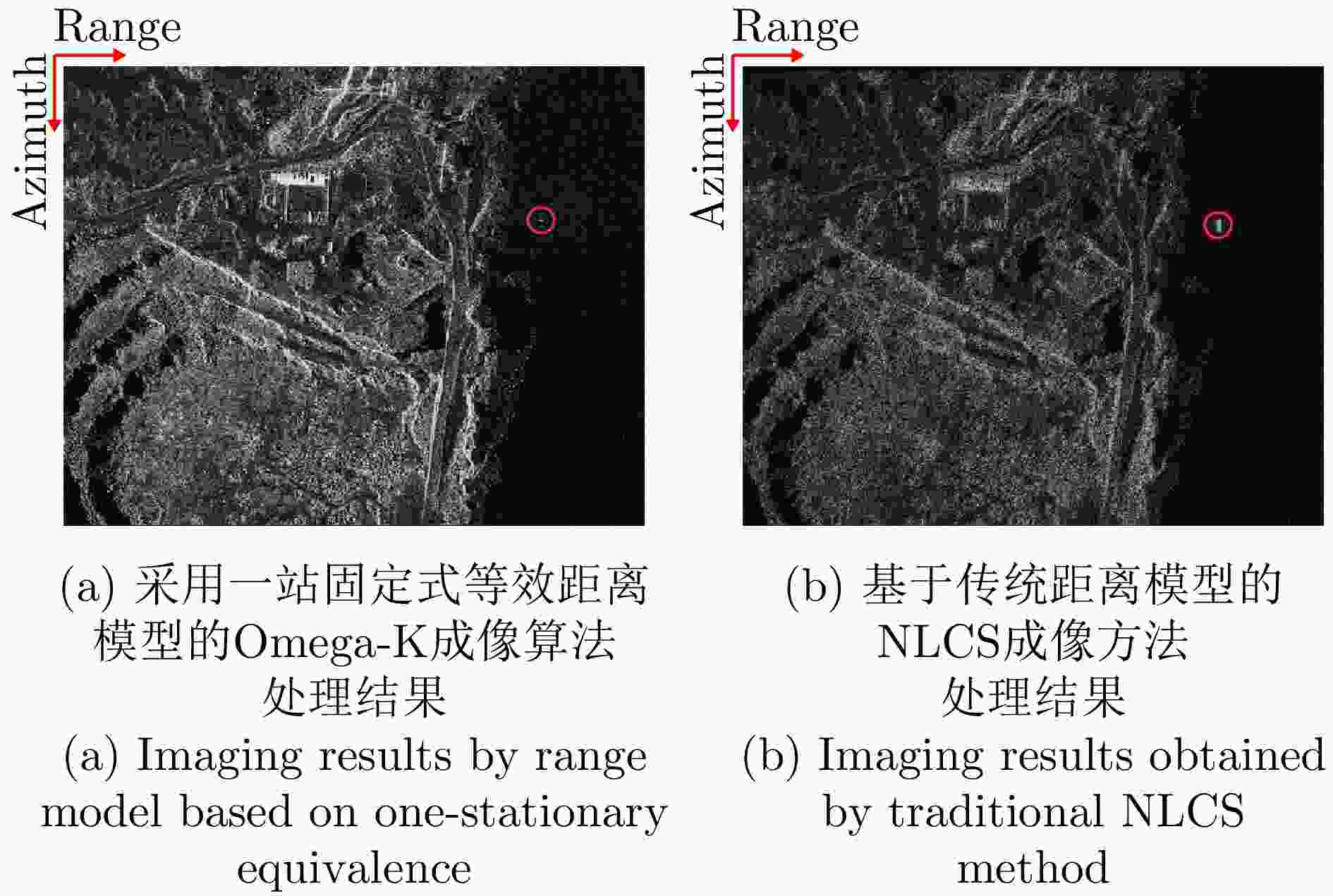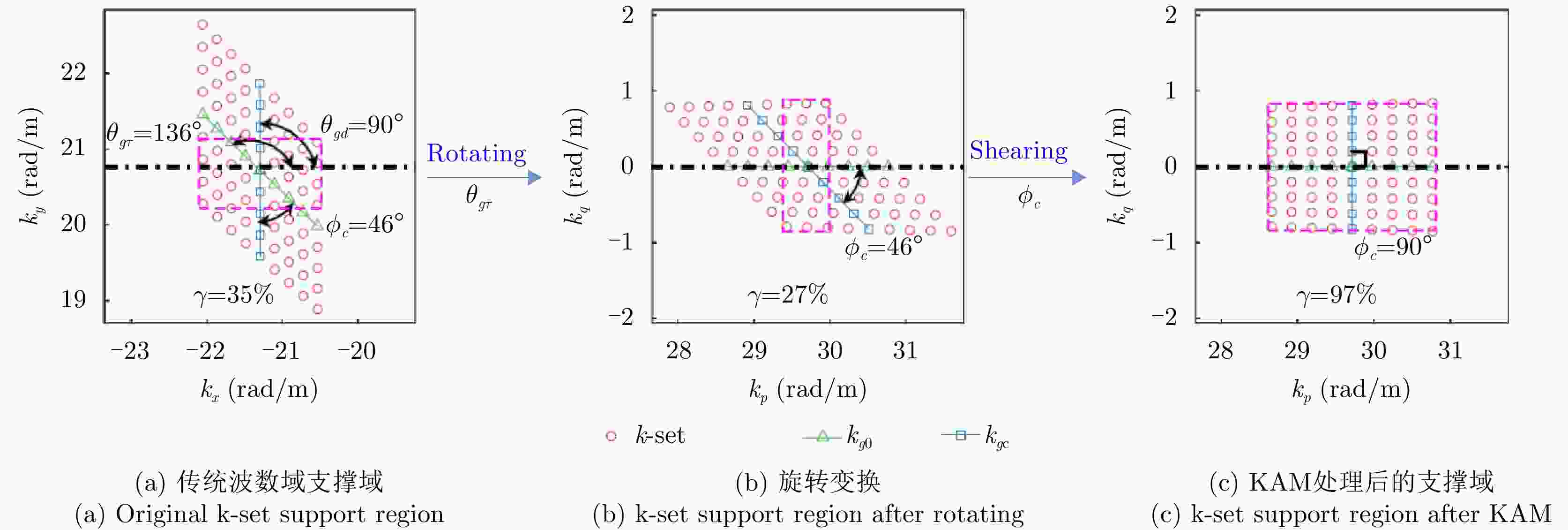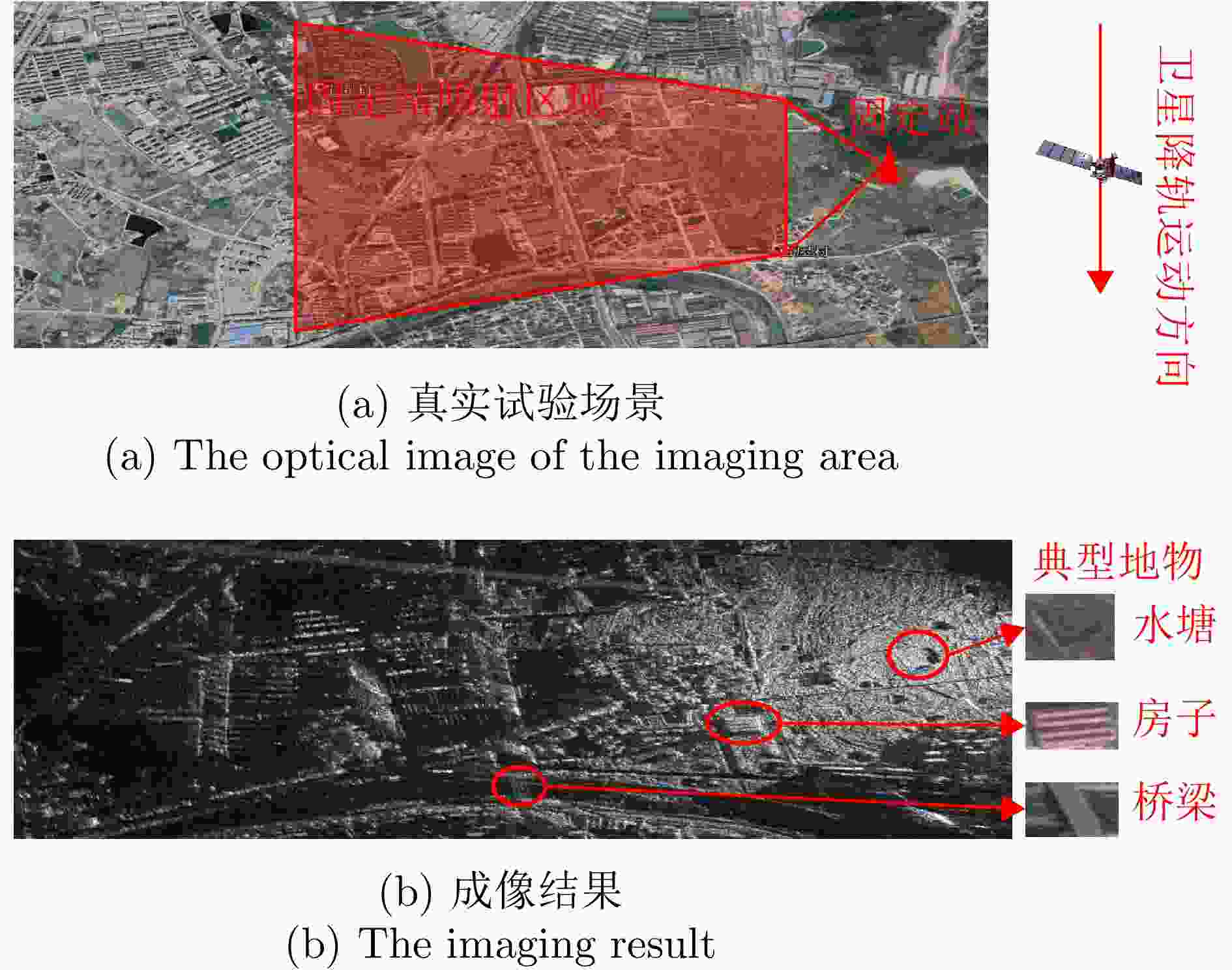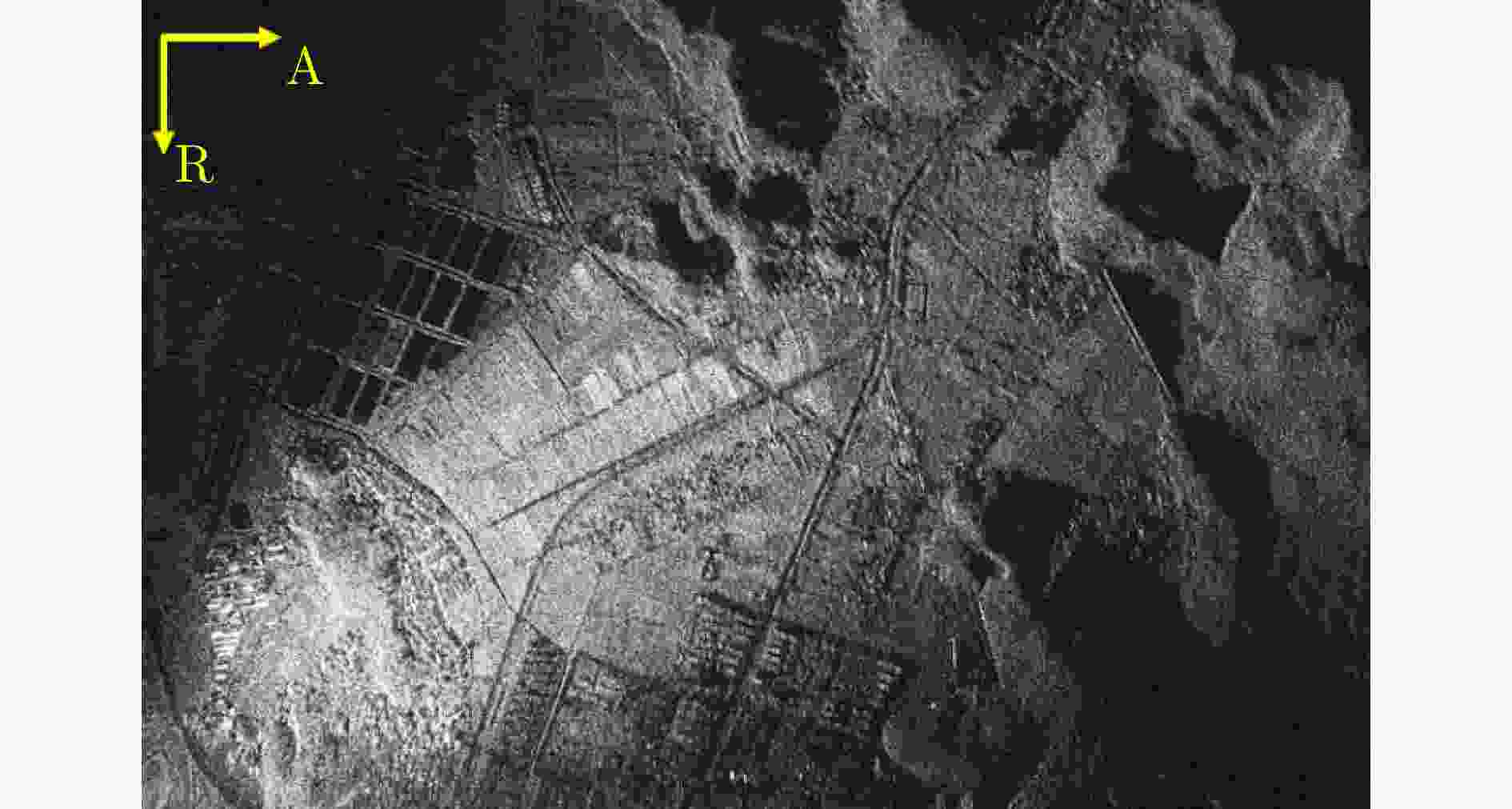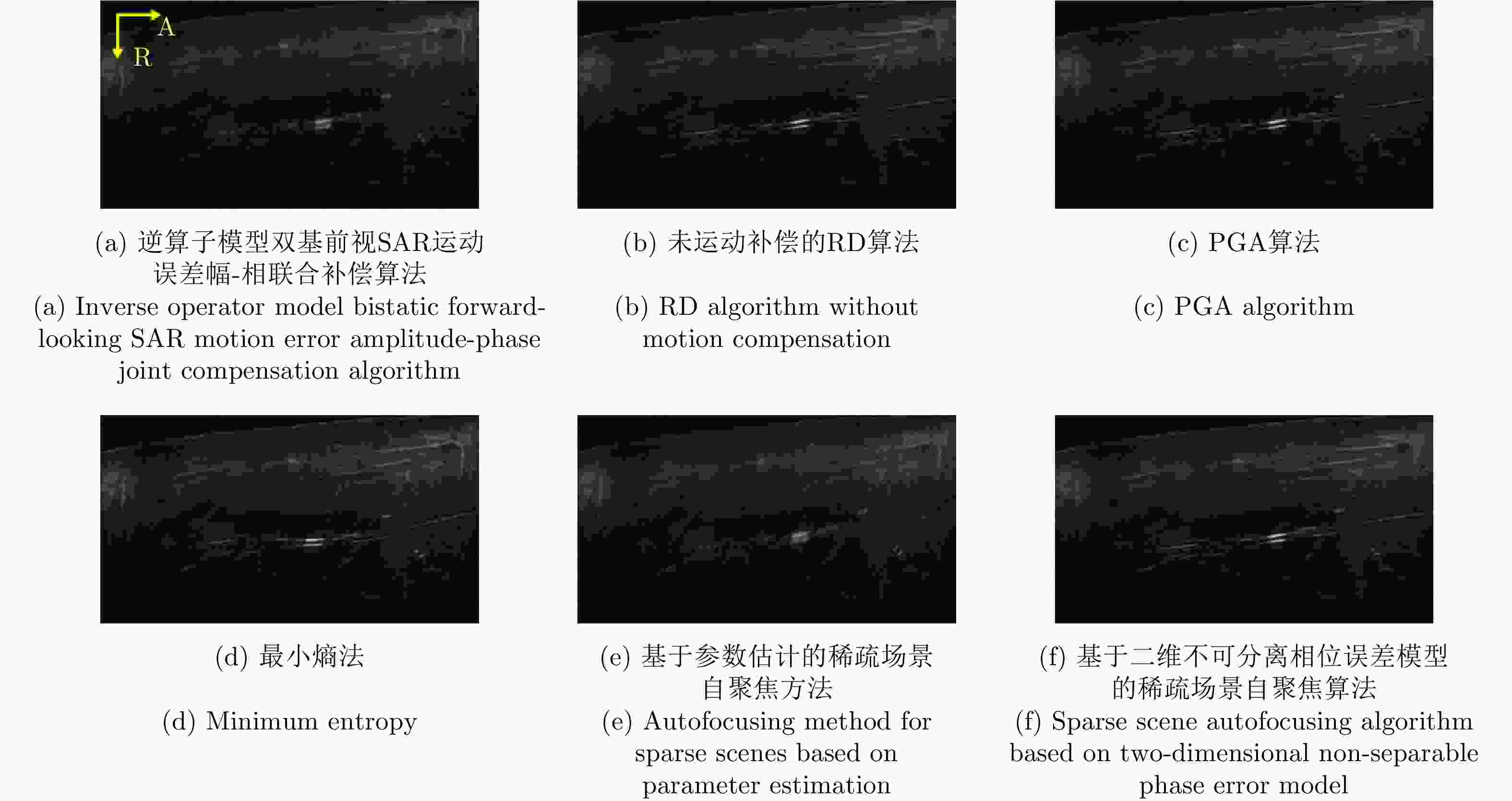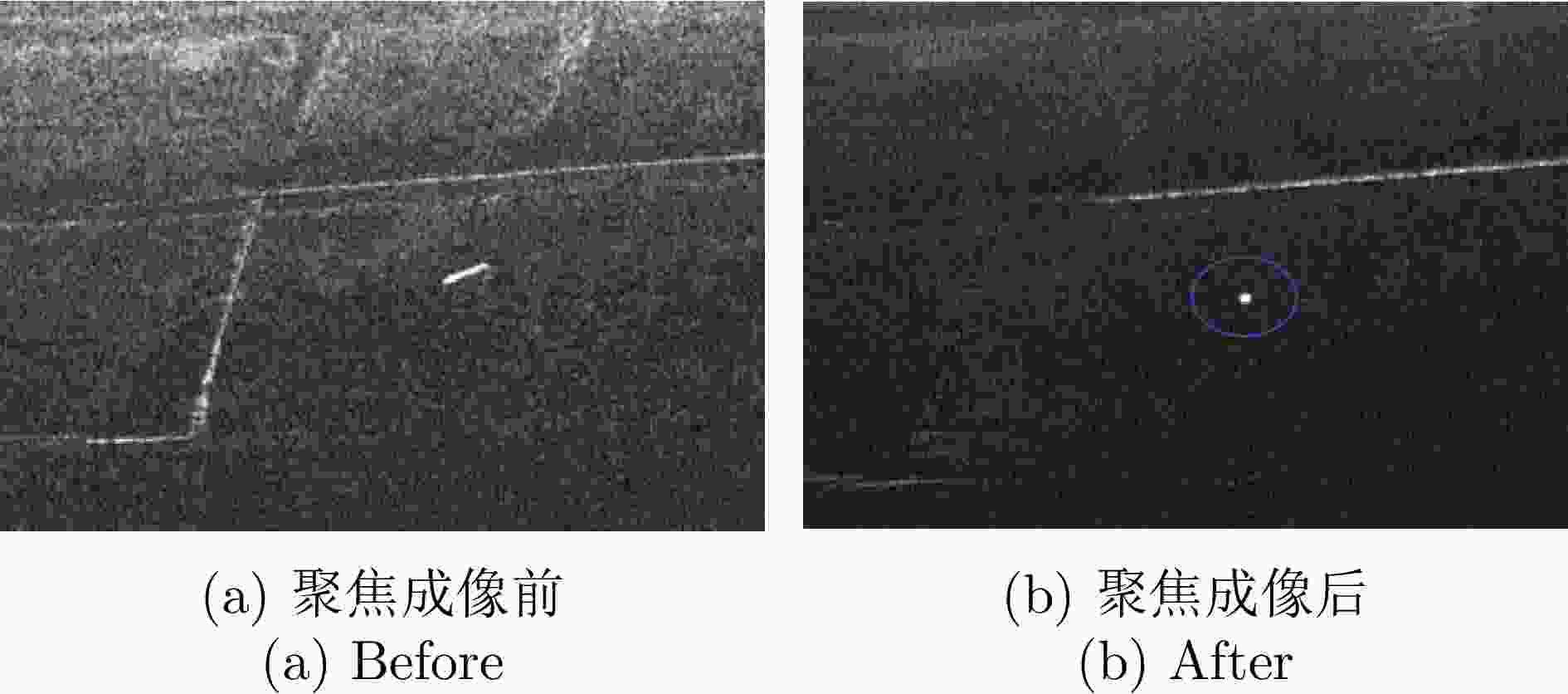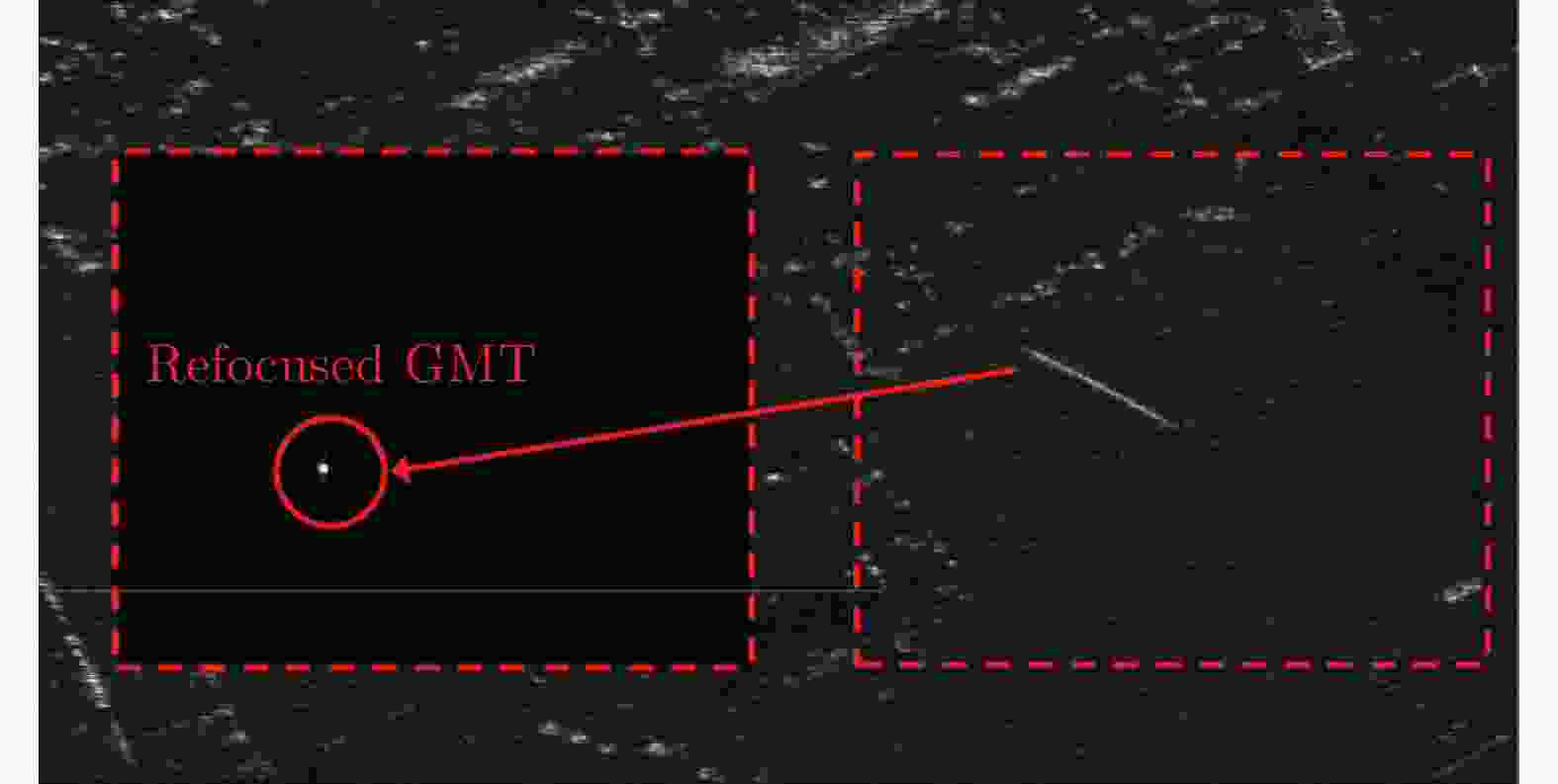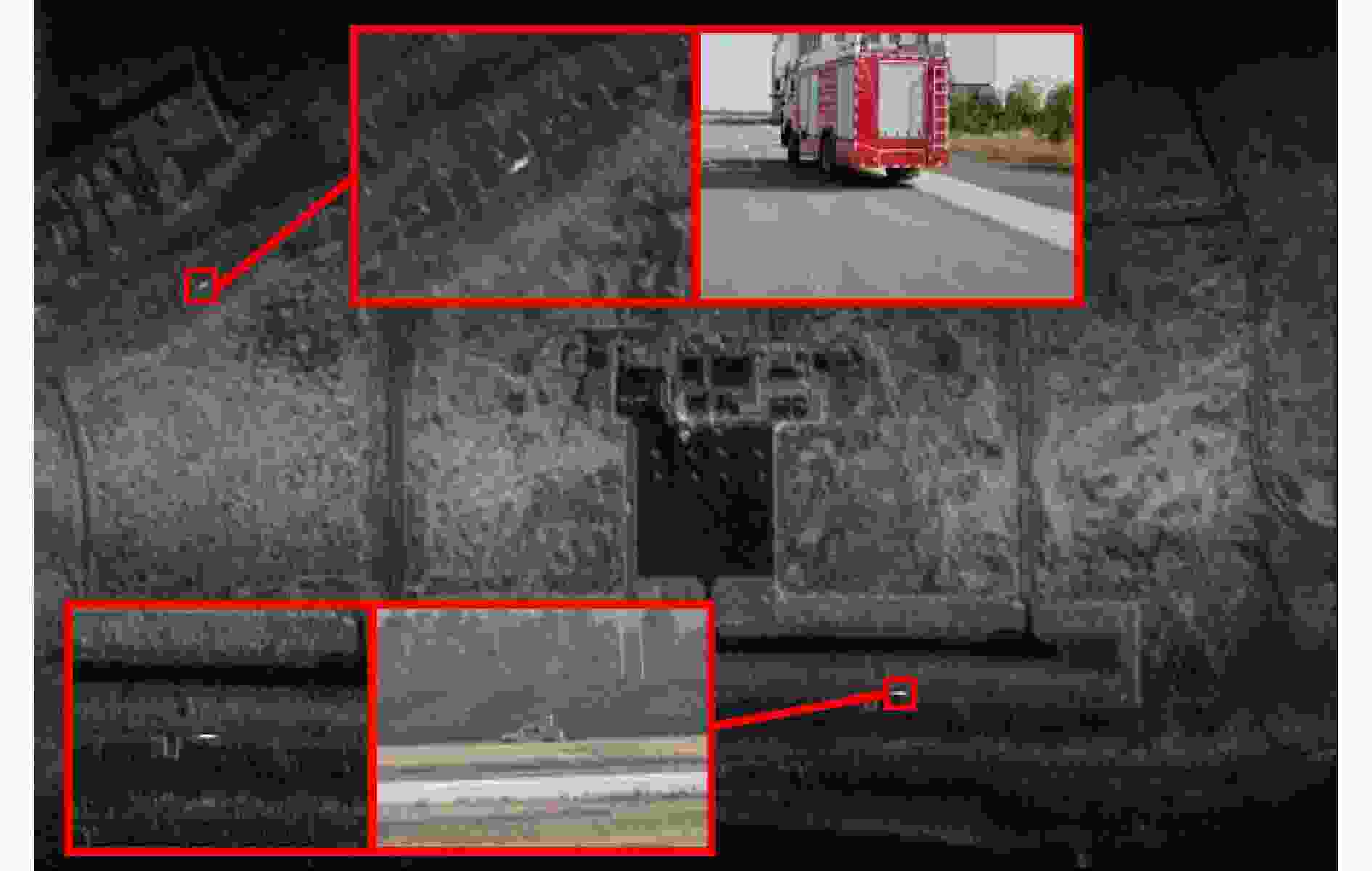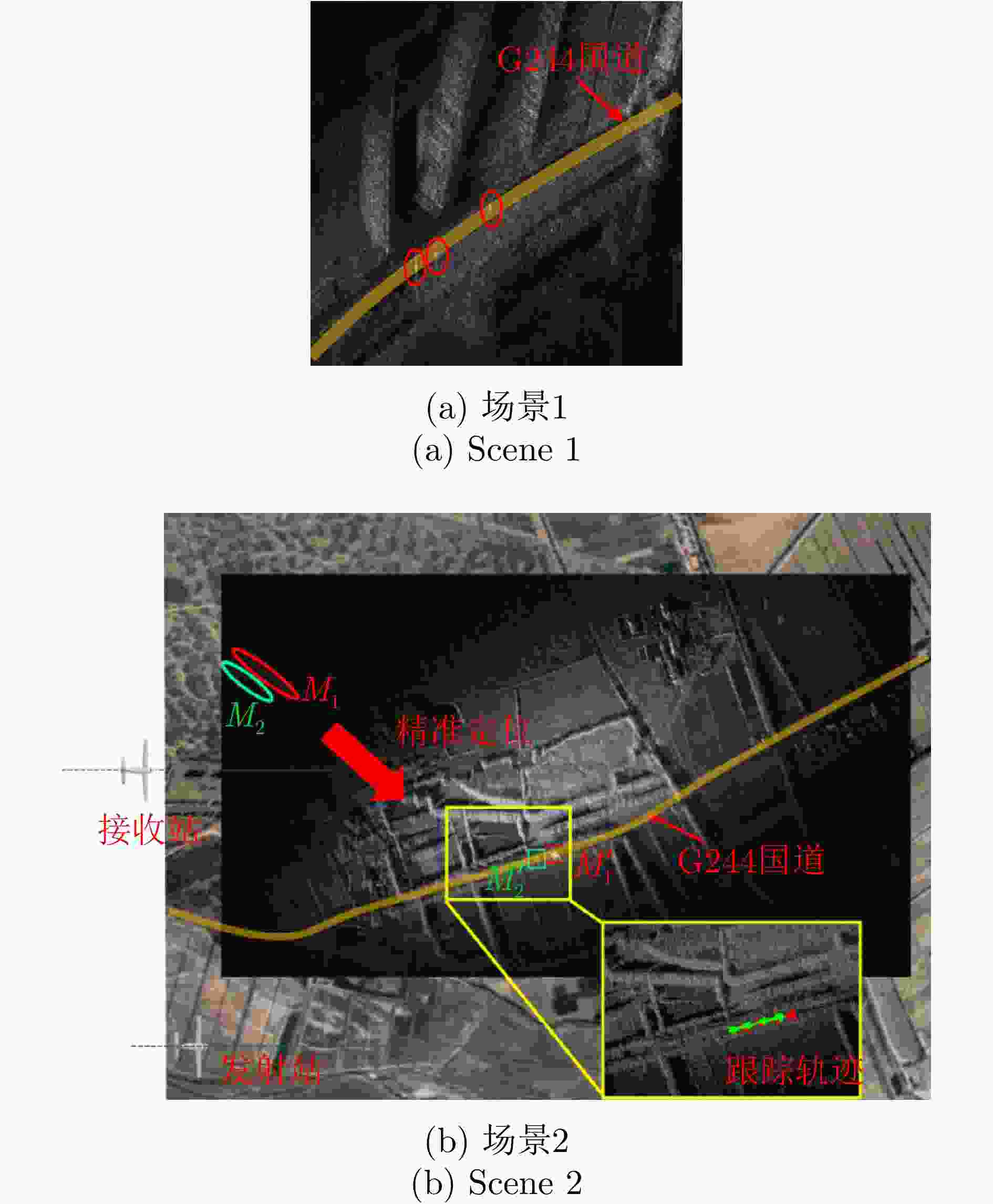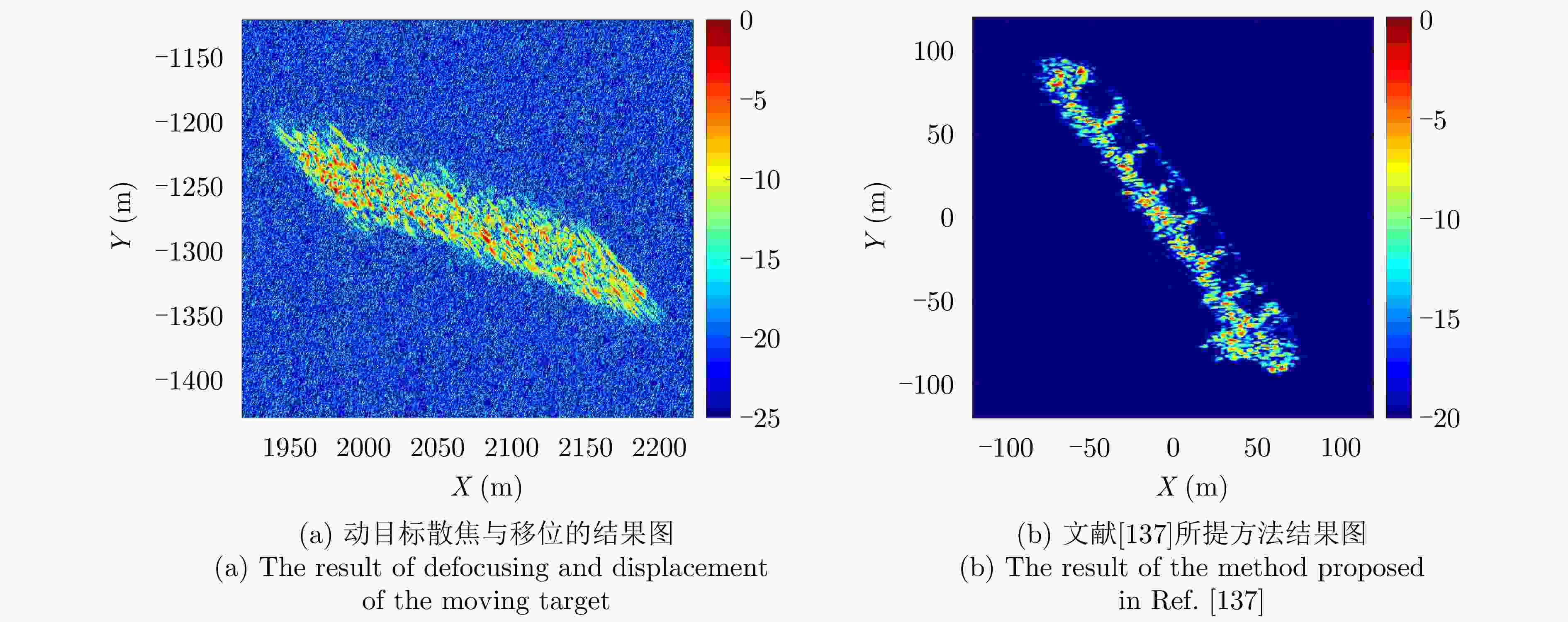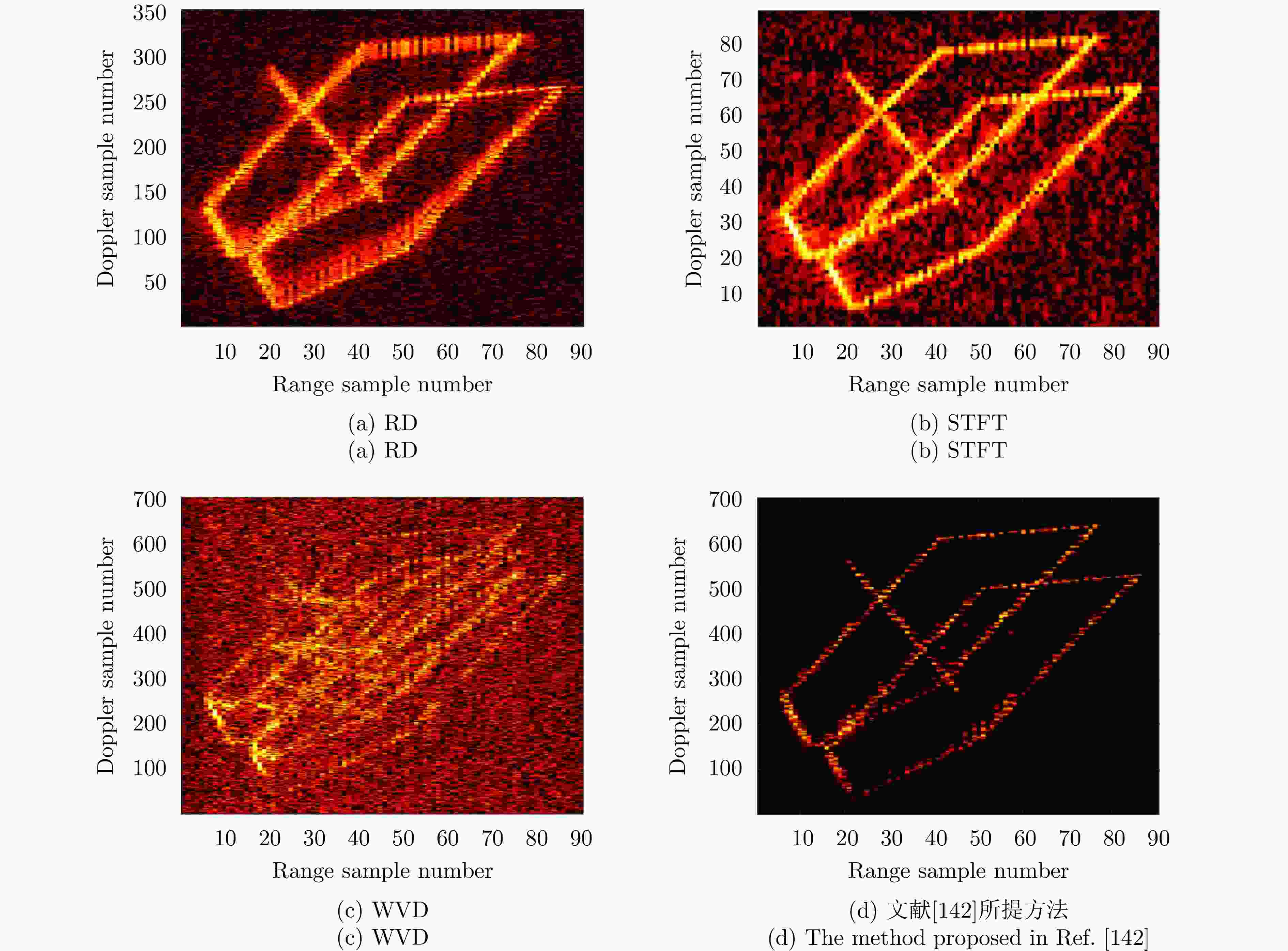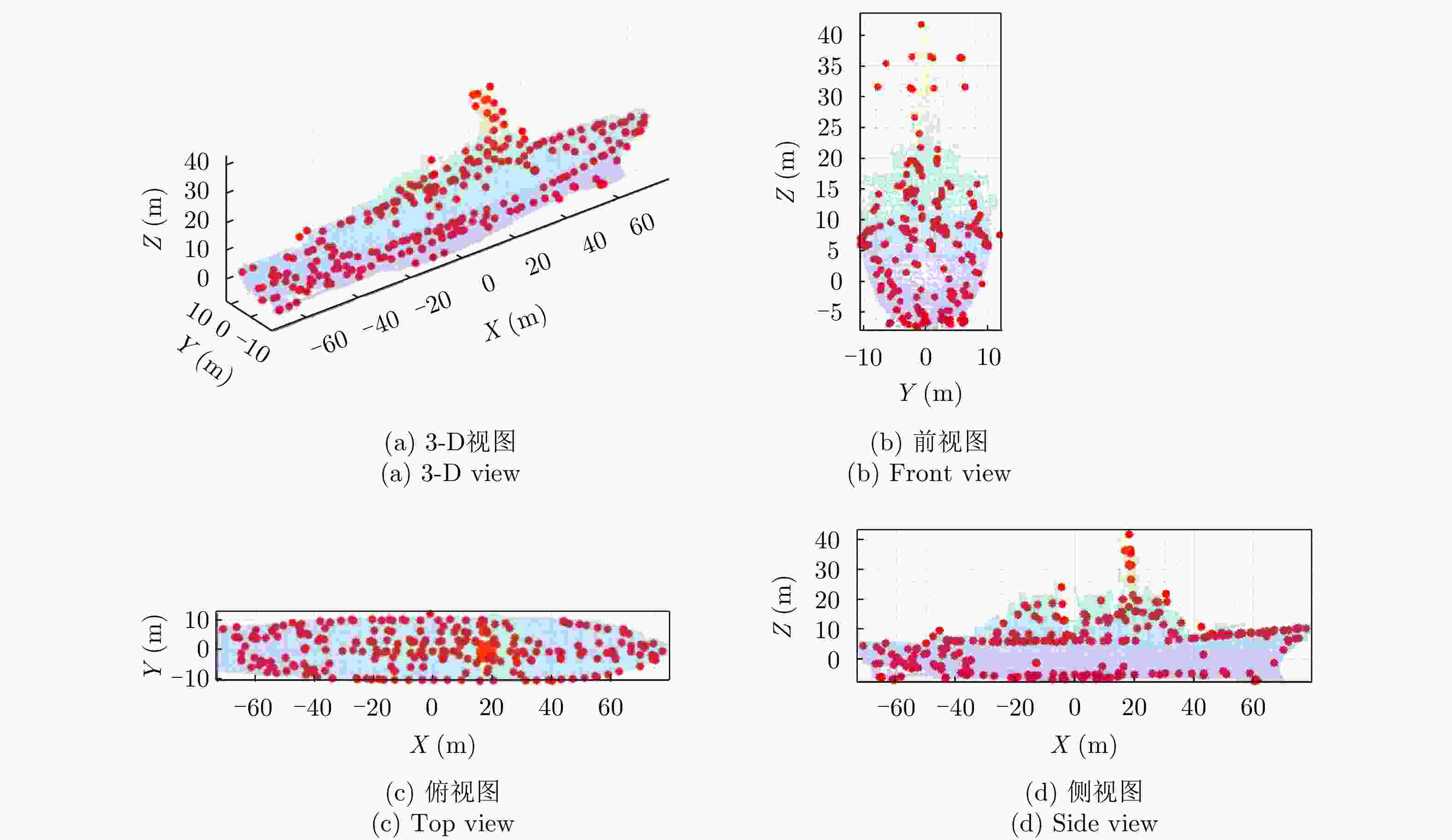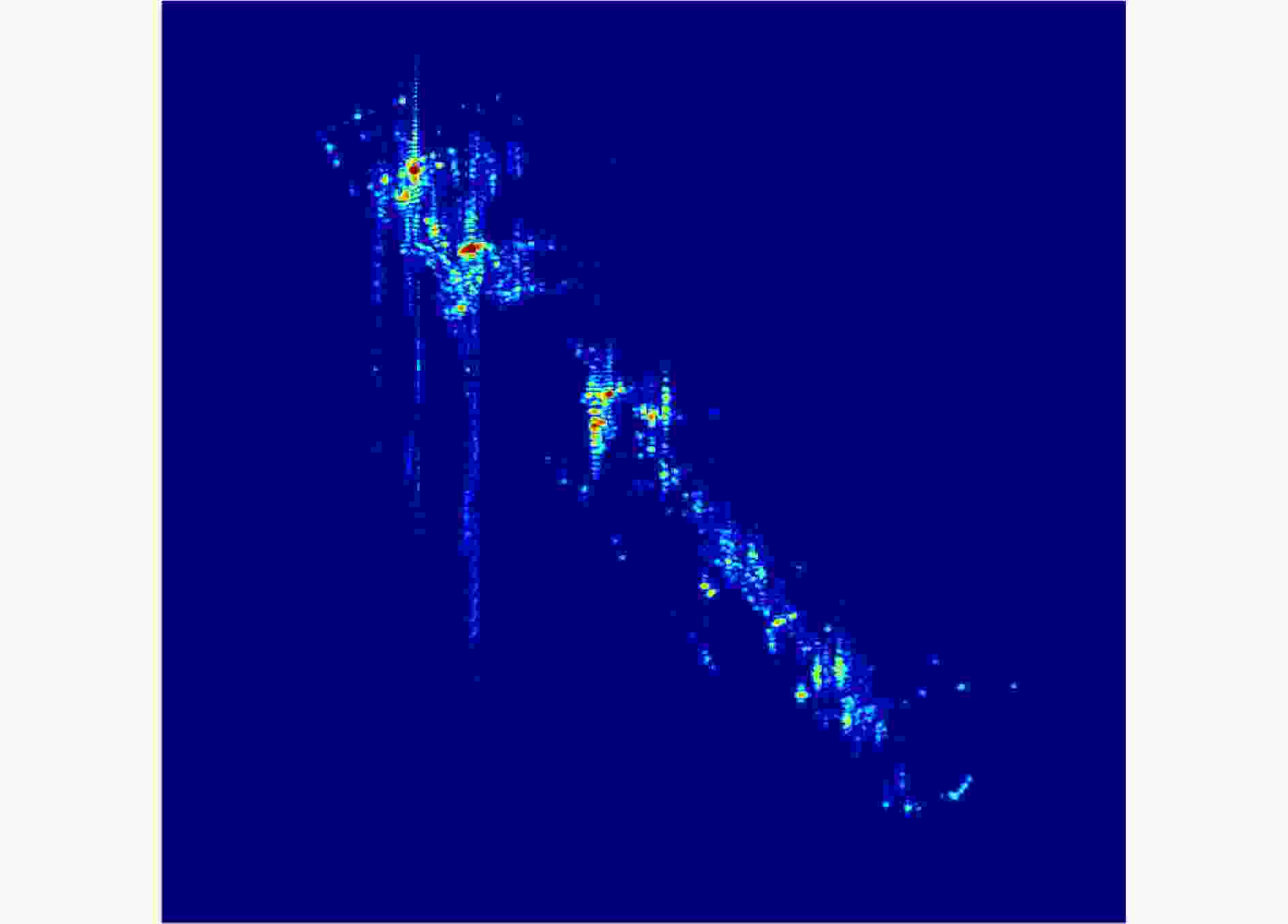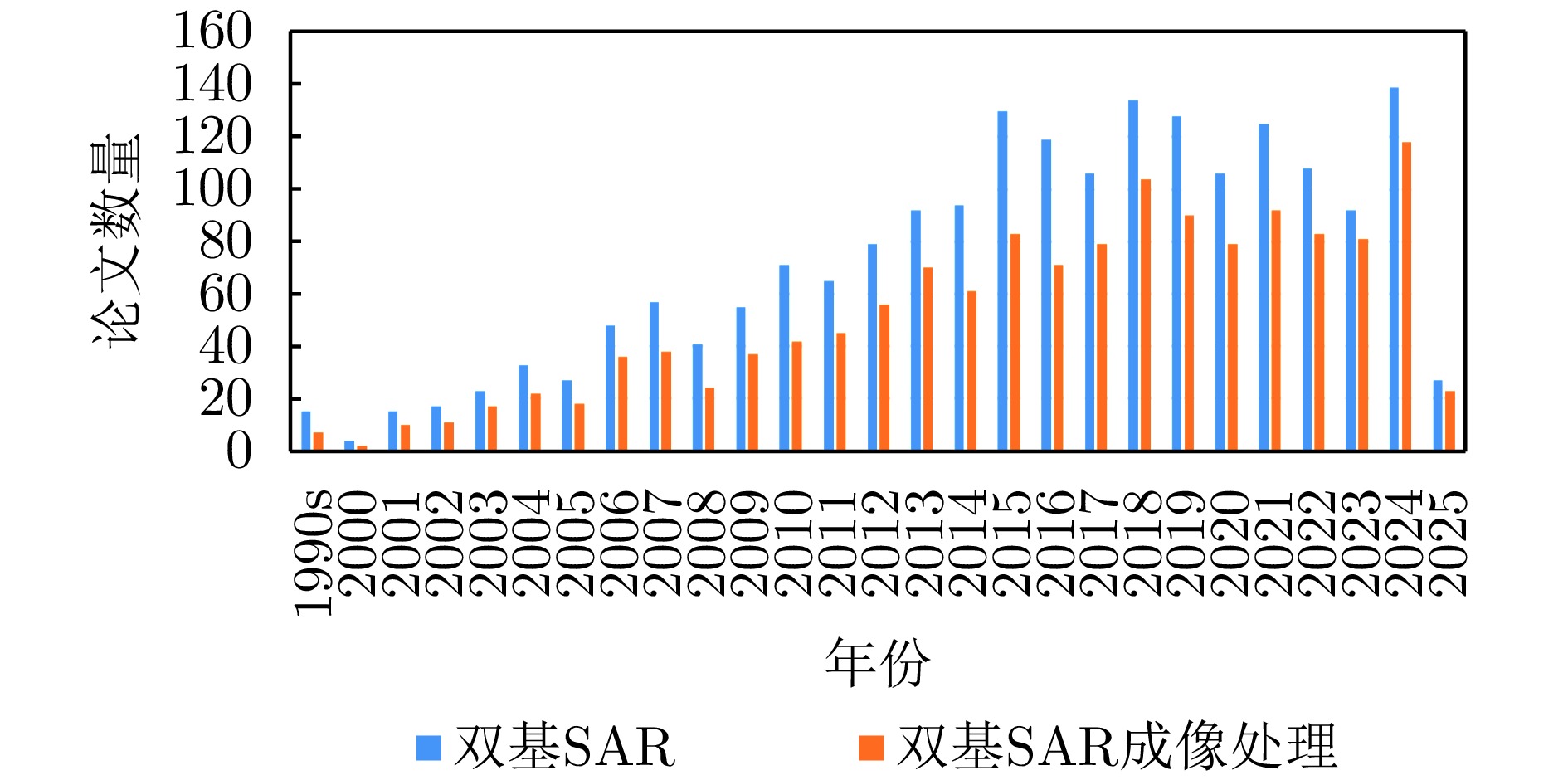-
摘要: 双基合成孔径雷达(SAR)采用收发平台分置的方式,能够实现复杂环境下对地海面场景和目标的高分辨成像,具有配置灵活、隐蔽性好、抗干扰能力强、获取目标信息丰富等优势,在高精度遥感测绘、隐蔽成像、精确打击等多个领域具备重要应用价值。成像处理是获得双基SAR高分辨图像的关键步骤,而双基SAR的回波模型、回波特性与传统单基SAR有显著的不同,需要对处于不同模式、不同构型下的双基SAR研究相应的成像处理方法。该文分别针对机载双基SAR、高速高机动平台双基SAR、星源异构双基SAR、星载同构双基SAR等典型模式,以及双基SAR运动补偿方法和运动目标成像等方面,分别阐述和分析了其中的关键问题,并梳理了国内外相关的解决思路和研究进展,最后对双基SAR成像处理技术的未来发展趋势进行展望。Abstract: The bistatic Synthetic Aperture Radar (SAR) system, which employs spatially separated transmitting and receiving platforms, provides high-resolution imaging of terrestrial and maritime scenes and targets in complex environments. Its advantages include flexible configuration, strong concealment capabilities, high interference resistance, and comprehensive target information acquisition, making it valuable in high-precision remote sensing mapping, covert imaging, and precision strikes. Image processing is critical for obtaining high-resolution Bistatic SAR (BiSAR) images. However, the echo model and characteristics of BiSAR substantially differ from those of traditional monostatic SAR, necessitating specialized image processing methods tailored to various operational modes and configurations. This study examines key challenges and solutions for several BiSAR configurations, including airborne BiSAR, BiSAR with high-speed and highly maneuverable platforms, spaceborne heterogeneous BiSAR, and spaceborne homogeneous BiSAR. This study also addresses motion compensation approaches and moving target imaging in BiSAR systems, reviews relevant domestic and international research advancements, and provides an outlook on future trends in BiSAR image processing.
-
图 28 结合多子孔径MD算法的FFBP算法对(a) 场景1、(b) 场景2和(c) 场景3的成像结果和基于图像最大对比度的FFBP轨迹估计算法对(d) 场景1、(e) 场景2和(f) 场景3的成像结果
Figure 28. Imaging results of FFBP algorithm combined with multi-aperture MD algorithm in (a) Scenario 1, (b) Scenario 2 and (c) Scenario 3. Imaging results of FFBP trajectory estimation algorithm based on image maximum contrast in (d) Scenario 1, (e) Scenario 2 and (f) Scenario 3
表 1 双基典型的各类构型面临的主要问题以及相对应的主要处理方法的优缺点
Table 1. Key challenges associated with various configurations and comparative analysis of corresponding solution approaches
平台类型 主要问题 处理方法 优点 缺点 共性问题 频谱模型不精确 等效单基处理 原理简单,可应用单基算法 适应小双基角场景 显式频谱模型 适应大双基角场景;可基于单基频域
算法推导,物理意义清晰推导难度大 隐式频谱法 频谱计算精确 计算效率低 通常会有二维空变 Keystone变换 可校正距离走动任意阶空变 仅适用于线性徙动 非线性Chirp Scaling 校正高阶非线性徙动与多普勒参数空变,
可以处理弯曲轨迹参数计算复杂 极坐标格式波数域映射 二维空变同时校正 无法处理高阶空变,
适用于聚束模式ω-K二维stolt变换 二维空变同时校正,处理精度较高 频谱模型精度要求高 时域方法 处理精度高,模式适应性强 处理效率低,对位置姿态
测量精度要求高分块处理,块内忽略空变性 方法简单 处理精度差,存在分块痕迹 机载 运动误差大 利用航姿信息补偿轨迹
偏移误差无须估计误差参数 航姿信息需精准 参数估计 计算效率高 无法处理高阶误差,精度低 相位误差估计 原理简单,计算效率高 无法处理误差空变量,精度有限 轨迹重建 可以解决二维空变 同时存在同步和运动误差时重建
精度受限,效率低分块补偿 可解决同步和运动混合误差 存在分块痕迹,效率低 高速高机动平台 “停走停”假设失效 高精度传播时延模型 模型精度高,成像质量好 成像算法设计困难 平台存在加速度等
高阶运动通用化双基等效斜距模型 可考虑平台恒定加速运动,
频谱模型精度高加速度变化时精度差 星源异构 照射源重频低的情况下
方位频谱混叠多通道接收 聚焦效果较好,适应性强 系统复杂度高 稀疏重建 不需要对系统硬件进行改造 效率低、依赖先验 -
[1] WU Junjie, YANG Jianyu, HUANG Yulin, et al. Bistatic forward-looking SAR: Theory and challenges[C]. IEEE Radar Conference, Pasadena, USA, 2009: 1–4. doi: 10.1109/RADAR.2009.4976959. [2] 杨建宇. 双基合成孔径雷达[M]. 北京: 国防工业出版社, 2017: 1–53.YANG Jianyu. Bistatic Synthetic Aperture Radar[M]. Beijing: National Defense Industry Press, 2017: 1–53. [3] WU Junjie, YANG Jianyu, YANG Haiguang, et al. Optimal geometry configuration of bistatic forward-looking SAR[C]. IEEE International Conference on Acoustics, Speech and Signal Processing (ICASSP), Taipei, China, 2009: 1117–1120. doi: 10.1109/ICASSP.2009.4959784. [4] CUMMING I G and WONG F H. Digital Processing of Synthetic Aperture Radar Data: Algorithms and Implementation[M]. Norwood, MA, USA: Artech House, 2005: 1–20. [5] YANG Jianyu, HUANG Yulin, YANG Haiguang, et al. A first experiment of airborne bistatic forward-looking SAR-preliminary results[C]. 2013 IEEE International Geoscience and Remote Sensing Symposium - IGARSS, Melbourne, Australia, 2013: 4202–4204. doi: 10.1109/IGARSS.2013.6723760. [6] QIU Xiaolan, HU Donghui, and DING Chibiao. Some reflections on bistatic SAR of forward-looking configuration[J]. IEEE Geoscience and Remote Sensing Letters, 2008, 5(4): 735–739. doi: 10.1109/LGRS.2008.2004506. [7] D’ARIA D, GUARNIERI A M, and ROCCA F. Focusing bistatic synthetic aperture radar using dip move out[J]. IEEE Transactions on Geoscience and Remote Sensing, 2004, 42(7): 1362–1376. doi: 10.1109/TGRS.2004.830166. [8] BAMLER R, MEYER F, and LIEBHART W. Processing of BISTATIC SAR data from quasi-stationary configurations[J]. IEEE Transactions on Geoscience and Remote Sensing, 2007, 45(11): 3350–3358. doi: 10.1109/TGRS.2007.895436. [9] QIU Xiaolan, HU Donghui, and DING Chibiao. Focusing bistaitc images use RDA based on hyperbolic approximating[C]. 2006 CIE International Conference on Radar, Shanghai, China, 2006: 1–4. doi: 10.1109/ICR.2006.343160. [10] LOFFELD O, NIES H, PETERS V, et al. Models and useful relations for bistatic SAR processing[J]. IEEE Transactions on Geoscience and Remote Sensing, 2004, 42(10): 2031–2038. doi: 10.1109/TGRS.2004.835295. [11] NEO Y L, WONG F, and CUMMING I G. A two-dimensional spectrum for bistatic SAR processing using series reversion[J]. IEEE Geoscience and Remote Sensing Letters, 2007, 4(1): 93–96. doi: 10.1109/LGRS.2006.885862. [12] RODRIGUEZ-CASSOLA M, KRIEGER G, and WENDLER M. Azimuth-invariant, bistatic airborne SAR processing strategies based on monostatic algorithms[C]. 2005 IEEE International Geoscience and Remote Sensing Symposium, Seoul, Korea (South), 2005: 1047–1050. doi: 10.1109/IGARSS.2005.1525294. [13] DING Jinshan, LOFFELD O, KNEDLIK S, et al. Focusing bistatic SAR data in the wavenumber domain using linearized weighted LBF[C]. 2009 IEEE Radar Conference, Pasadena, USA, 2009: 1–6. doi: 10.1109/RADAR.2009.4977059. [14] WALTERSCHEID I, ENDER J H G, BRENNER A R, et al. Bistatic SAR processing using an omega-K type algorithm[C]. 2005 IEEE International Geoscience and Remote Sensing Symposium, Seoul, Korea (South), 2005: 1064–1067. doi: 10.1109/IGARSS.2005.1525298. [15] WALTERSCHEID I, ENDER J H G, BRENNER A R, et al. Bistatic SAR processing and experiments[J]. IEEE Transactions on Geoscience and Remote Sensing, 2006, 44(10): 2710–2717. doi: 10.1109/TGRS.2006.881848. [16] WANG R, LOFFELD O, NIES H, et al. Chirp-scaling algorithm for bistatic SAR data in the constant-offset configuration[J]. IEEE Transactions on Geoscience and Remote Sensing, 2009, 47(3): 952–964. doi: 10.1109/TGRS.2008.2006275. [17] CHEN Shichao, WU Qisong, ZHOU Peng, et al. A new look at Loffeld’s bistatic formula in tandem configuration[J]. IEEE Geoscience and Remote Sensing Letters, 2012, 9(4): 710–714. doi: 10.1109/LGRS.2011.2179285. [18] ZARE A, MASNADI-SHIRAZI M A, and SAMADI S. Chirp scaling algorithm for processing bistatic SAR data based on Loffeld’s bistatic formula[C]. The 9th European Conference on Synthetic Aperture Radar, Nuremberg, Germany, 2012: 780–783. [19] WU Junjie, LI Zhongyu, HUANG Yulin, et al. An omega-K algorithm for translational invariant bistatic SAR based on generalized Loffeld’s bistatic formula[J]. IEEE Transactions on Geoscience and Remote Sensing, 2014, 52(10): 6699–6714. doi: 10.1109/TGRS.2014.2301433. [20] WU Junjie, PU Wei, HUANG Yulin, et al. Bistatic forward-looking SAR focusing using ω-k based on spectrum modeling and optimization[J]. IEEE Journal of Selected Topics in Applied Earth Observations and Remote Sensing, 2018, 11(11): 4500–4512. doi: 10.1109/JSTARS.2018.2873645. [21] ENDER J H G. A step to bistatic SAR processing[C]. Eur. Conf. Synthetic Aperture Radar, Ulm, Germany, 2004: 356–359. [22] NEO Y L, WONG F H, and CUMMING I G. Processing of azimuth-invariant bistatic SAR data using the range doppler algorithm[J]. IEEE Transactions on Geoscience and Remote Sensing, 2008, 46(1): 14–21. doi: 10.1109/TGRS.2007.909090. [23] 李燕平, 邢孟道, 井伟, 等. 一种双基SAR的SR-ECS成像算法[J]. 自然科学进展, 2008, 18(3): 323–333. doi: 10.3321/j.issn:1002-008X.2008.03.011.LI Yanping, XING Mengdao, JING Wei, et al. An SR-ECS imaging algorithm for dual-baseline SAR[J]. Progress in Natural Science, 2008, 18(3): 323–333. doi: 10.3321/j.issn:1002-008X.2008.03.011. [24] ZHONG Hua and LIU Xingzhao. An extended nonlinear chirp-scaling algorithm for focusing large-baseline azimuth-invariant bistatic SAR data[J]. IEEE Geoscience and Remote Sensing Letters, 2009, 6(3): 548–552. doi: 10.1109/LGRS.2009.2021676. [25] LIU Baochang, WANG Tong, WU Qisong, et al. Bistatic SAR data focusing using an omega-K algorithm based on method of series reversion[J]. IEEE Transactions on Geoscience and Remote Sensing, 2009, 47(8): 2899–2912. doi: 10.1109/TGRS.2009.2017522. [26] BAMLER R, MEYER F, and LIEBHART W. No math: Bistatic SAR processing using numerically computed transfer functions[C]. 2006 IEEE International Symposium on Geoscience and Remote Sensing, Denver, USA, 2006: 1844–1847. doi: 10.1109/IGARSS.2006.476. [27] ENDER J H G, WALTERSCHEID I, and BRENNER A R. Bistatic SAR-translational invariant processing and experimental results[J]. IEE Proceedings-Radar, Sonar and Navigation, 2006, 153(3): 177–183. doi: 10.1049/ip-rsn:20050052. [28] WU Junjie, YANG Jianyu, HUANG Yulin, et al. Focusing bistatic forward-looking SAR using chirp scaling algorithm[C]. 2011 IEEE RadarCon (RADAR), Kansas City, USA, 2011: 1036–1039. doi: 10.1109/RADAR.2011.5960693. [29] NATROSHVILI K, LOFFELD O, NIES H, et al. Focusing of general bistatic SAR configuration data with 2-D inverse scaled FFT[J]. IEEE Transactions on Geoscience and Remote Sensing, 2006, 44(10): 2718–2727. doi: 10.1109/TGRS.2006.872725. [30] WONG F H, CUMMING I G, and NEO Y L. Focusing bistatic SAR data using the nonlinear chirp scaling algorithm[J]. IEEE Transactions on Geoscience and Remote Sensing, 2008, 46(9): 2493–2505. doi: 10.1109/TGRS.2008.917599. [31] MEI Haiwen, LI Yachao, XING Mengdao, et al. A new nonlinear chirp scaling algorithm for translational variant bistatic forward-looking SAR with dive trajectory[C]. The 6th Asia-Pacific Conference on Synthetic Aperture Radar, Xiamen, China, 2019: 1–5. doi: 10.1109/APSAR46974.2019.9048476. [32] WANG Zhigui, LIU Mei, AI Gengting, et al. Focusing of bistatic SAR with curved trajectory based on extended azimuth nonlinear chirp scaling[J]. IEEE Transactions on Geoscience and Remote Sensing, 2020, 58(6): 4160–4179. doi: 10.1109/TGRS.2019.2961562. [33] WU Junjie, SUN Zhichao, LI Zhongyu, et al. Focusing translational variant bistatic forward-looking SAR using keystone transform and extended nonlinear chirp scaling[J]. Remote Sensing, 2016, 8(10): 840. doi: 10.3390/rs8100840. [34] MEI Haiwen, LI Yachao, XING Mengdao, et al. A frequency-domain imaging algorithm for translational variant bistatic forward-looking SAR[J]. IEEE Transactions on Geoscience and Remote Sensing, 2020, 58(3): 1502–1515. doi: 10.1109/TGRS.2019.2943743. [35] WU Junjie, LI Zhongyu, HUANG Yulin, et al. A generalized omega-K algorithm to process translationally variant bistatic-SAR data based on two-dimensional Stolt mapping[J]. IEEE Transactions on Geoscience and Remote Sensing, 2014, 52(10): 6597–6614. doi: 10.1109/TGRS.2014.2299069. [36] LI Yachao, ZHANG Tinghao, MEI Haiwen, et al. Focusing translational-variant bistatic forward-looking SAR data using the modified omega-K algorithm[J]. IEEE Transactions on Geoscience and Remote Sensing, 2022, 60: 5203916. doi: 10.1109/TGRS.2021.3063780. [37] YARMAN C E, YAZICI B, and CHENEY M. Bistatic synthetic aperture radar imaging for arbitrary flight trajectories[J]. IEEE Transactions on Image Processing, 2008, 17(1): 84–93. doi: 10.1109/TIP.2007.911812. [38] VU V T and PETTERSSON M I. Fast backprojection algorithms based on subapertures and local polar coordinates for general bistatic airborne SAR systems[J]. IEEE Transactions on Geoscience and Remote Sensing, 2016, 54(5): 2706–2712. doi: 10.1109/TGRS.2015.2504787. [39] ULANDER L M H, HELLSTEN H, and STENSTROM G. Synthetic-aperture radar processing using fast factorized back-projection[J]. IEEE Transactions on Aerospace and Electronic Systems, 2003, 39(3): 760–776. doi: 10.1109/TAES.2003.1238734. [40] ULANDER L M H, FROELIND P O, GUSTAVSSON A, et al. Fast factorized back-projection for bistatic SAR processing[C]. The 8th European Conference on Synthetic Aperture Radar, Aachen, Germany, 2010: 1–4. [41] RODRIGUEZ-CASSOLA M, PRATS P, KRIEGER G, et al. Efficient time-domain image formation with precise topography accommodation for general bistatic SAR configurations[J]. IEEE Transactions on Aerospace and Electronic Systems, 2011, 47(4): 2949–2966. doi: 10.1109/TAES.2011.6034676. [42] PU Wei, WU Junjie, HUANG Yulin, et al. Fast factorized backprojection imaging algorithm integrated with motion trajectory estimation for bistatic forward-looking SAR[J]. IEEE Journal of Selected Topics in Applied Earth Observations and Remote Sensing, 2019, 12(10): 3949–3965. doi: 10.1109/JSTARS.2019.2945118. [43] SUN Huarui, SUN Zhichao, CHEN Zhichao, et al. An efficient backprojection algorithm based on wavenumber-domain spectral splicing for monostatic and bistatic SAR configurations[J]. Remote Sensing, 2022, 14(8): 1885. doi: 10.3390/rs14081885. [44] FISHER D F. Fifty years of flight research: An annotated bibliography of technical publications of NASA Dryden flight research center, 1946-1996[R]. National Aeronautics and Space Administration, Dryden Flight Research Center, 1999. [45] DOOLAN C J. Hypersonic missile performance and sensitivity analysis[J]. Journal of Spacecraft and Rockets, 2007, 44(1): 81–87. doi: 10.2514/1.23160. [46] SCHMISSEUR J D. Hypersonics into the 21st century: A perspective on AFOSR-sponsored research in aerothermodynamics[J]. Progress in Aerospace Sciences, 2015, 72: 3–16. doi: 10.1016/j.paerosci.2014.09.009. [47] TIAN Bailing, FAN Wenru, SU Rui, et al. Real-time trajectory and attitude coordination control for reusable launch vehicle in reentry phase[J]. IEEE Transactions on Industrial Electronics, 2015, 62(3): 1639–1650. doi: 10.1109/TIE.2014.2341553. [48] XU Xuefei, LIAO Guisheng, YANG Zhiwei, et al. Moving-in-pulse duration model-based target integration method for HSV-borne high-resolution radar[J]. Digital Signal Processing, 2017, 68: 31–43. doi: 10.1016/j.dsp.2017.05.007. [49] 邓欢, 李亚超, 梅海文, 等. 弹载曲线轨迹双基SAR反向滤波PFA成像与图像畸变校正算法[J]. 电子与信息学报, 2018, 40(11): 2638–2644. doi: 10.11999/JEIT170994.DENG Huan, LI Yachao, MEI Haiwen, et al. New back-filtering PFA imaging algorithm and distortion correction method for missile-borne bistatic SAR with curved track[J]. Journal of Electronics & Information Technology, 2018, 40(11): 2638–2644. doi: 10.11999/JEIT170994. [50] ZHANG Qianghui, WU Junjie, YANG Jianyu, et al. Non-stop-and-go echo model for hypersonic-vehicle-borne bistatic forward-looking SAR[C]. 2018 IEEE International Geoscience and Remote Sensing Symposium, Valencia, Spain, 2018: 545–548. doi: 10.1109/IGARSS.2018.8517465. [51] ZHANG Qianghui, WU Junjie, QU Jingyi, et al. Echo model without stop-and-go approximation for bistatic SAR with maneuvers[J]. IEEE Geoscience and Remote Sensing Letters, 2019, 16(7): 1056–1060. doi: 10.1109/LGRS.2019.2891510. [52] 张强辉. 高速机动平台双基前视SAR成像方法研究[D]. [博士论文], 电子科技大学, 2019. doi: 10.27005/d.cnki.gdzku.2019.000037.ZHANG Qianghui. Imaging method research for bistatic forward-looking SAR mounted on high-speed maneuvering platform[D]. [Ph.D. dissertation], University of Electronic Science and Technology, 2019. doi: 10.27005/d.cnki.gdzku.2019.000037. [53] FENG Dong, AN Daoxiang, and HUANG Xiaotao. An extended fast factorized back projection algorithm for missile-borne bistatic forward-looking SAR imaging[J]. IEEE Transactions on Aerospace and Electronic Systems, 2018, 54(6): 2724–2734. doi: 10.1109/TAES.2018.2828238. [54] DENG Huan, LI Yachao, LIU Mengqi, et al. A space-variant phase filtering imaging algorithm for missile-borne BiSAR with arbitrary configuration and curved track[J]. IEEE Sensors Journal, 2018, 18(8): 3311–3326. doi: 10.1109/JSEN.2018.2809508. [55] CHEN Si, YUAN Yue, ZHANG Shuning, et al. A new imaging algorithm for forward-looking missile-borne bistatic SAR[J]. IEEE Journal of Selected Topics in Applied Earth Observations and Remote Sensing, 2016, 9(4): 1543–1552. doi: 10.1109/JSTARS.2015.2507260. [56] ZHANG Qianghui, WU Junjie, LI Zhongyu, et al. PFA for bistatic forward-looking SAR mounted on high-speed maneuvering platforms[J]. IEEE Transactions on Geoscience and Remote Sensing, 2019, 57(8): 6018–6036. doi: 10.1109/TGRS.2019.2903878. [57] MAO Xinhua, ZHU Daiyin, and ZHU Zhaoda. Polar format algorithm wavefront curvature compensation under arbitrary radar flight path[C]. 2011 IEEE CIE International Conference on Radar, Chengdu, China, 2011: 1382–1385. doi: 10.1109/CIE-Radar.2011.6159816. [58] MIAO Yuxuan, WU Junjie, LI Zhongyu, et al. A generalized wavefront-curvature-corrected polar format algorithm to focus bistatic SAR under complicated flight paths[J]. IEEE Journal of Selected Topics in Applied Earth Observations and Remote Sensing, 2020, 13: 3757–3771. doi: 10.1109/JSTARS.2020.2999966. [59] WANG Xin, ZHU Daiyin, MAO Xinhua, et al. Space-variant filtering for wavefront curvature correction in polar formatted bistatic SAR image[J]. IEEE Transactions on Aerospace and Electronic Systems, 2012, 48(2): 940–950. doi: 10.1109/TAES.2012.6178040. [60] WU Junjie, SUN Zhichao, HE Hongyang, et al. Azimuth signal multichannel reconstruction and channel configuration design for geosynchronous spaceborne-airborne bistatic SAR[J]. IEEE Transactions on Geoscience and Remote Sensing, 2019, 57(4): 1861–1872. doi: 10.1109/TGRS.2018.2869835. [61] AN Hongyang, WU Junjie, HE Zhiwei, et al. Geosynchronous spaceborne-airborne multichannel bistatic SAR imaging using weighted fast factorized backprojection method[J]. IEEE Geoscience and Remote Sensing Letters, 2019, 16(10): 1590–1594. doi: 10.1109/LGRS.2019.2902036. [62] WALTERSCHEID I, ESPETER T, KLARE J, et al. Bistatic spaceborne-airborne forward-looking SAR[C]. The 8th European Conference on Synthetic Aperture Radar, Aachen, Germany, 2010: 1–4. [63] AN Hongyang, WU Junjie, TEH K C, et al. Geosynchronous spaceborne-airborne bistatic SAR imaging based on fast low-rank and sparse matrices recovery[J]. IEEE Transactions on Geoscience and Remote Sensing, 2022, 60: 5207714. doi: 10.1109/TGRS.2021.3081099. [64] AN Hongyang, WU Junjie, SUN Zhichao, et al. A two-step nonlinear chirp scaling method for multichannel GEO spaceborne-airborne bistatic SAR spectrum reconstructing and focusing[J]. IEEE Transactions on Geoscience and Remote Sensing, 2019, 57(6): 3713–3728. doi: 10.1109/TGRS.2018.2886817. [65] WANG R, LOFFELD O, NIES H, et al. Focusing results and analysis of advanced bistatic SAR experiments in spaceborne or airborne/airborne or stationary configurations[C]. The 8th European Conference on Synthetic Aperture Radar, Aachen, Germany, 2010: 1–4. [66] SUN zhichao, WU junjie, LI zhongyu, et al. Geosynchronous spaceborne-airborne bistatic SAR data focusing using a novel range model based on one-stationary equivalence[J]. IEEE Transactions on Geoscience and Remote Sensing, 2021, 59(2): 1214–1230. doi: 10.1109/TGRS.2020.3002900. [67] 蒲巍. 机载双基地前视SAR运动补偿方法研究[D]. [博士论文], 电子科技大学, 2018.PU Wei. Research on airborne bistatic forward-looking SAR motion compensation[D]. [Ph.D. dissertation], University of Electronic Science and Technology, 2018. [68] ZHANG Heng, DENG Yunkai, WANG R, et al. Spaceborne/stationary bistatic SAR imaging with TerraSAR-X as an illuminator in staring-spotlight mode[J]. IEEE Transactions on Geoscience and Remote Sensing, 2016, 54(9): 5203–5216. doi: 10.1109/TGRS.2016.2558294. [69] BAUMGARTNER S V, RODRIGUEZ-CASSOLA M, NOTTENSTEINER A, et al. Bistatic experiment using TerraSAR-X and DLR’s new F-SAR system[C]. The 7th European Conference on Synthetic Aperture Radar, Friedrichshafen, Germany, 2008: 1–4. [70] XING Mengdao, JIANG Xiuwei, WU Renbiao, et al. Motion compensation for UAV SAR based on raw radar data[J]. IEEE Transactions on Geoscience and Remote Sensing, 2009, 47(8): 2870–2883. doi: 10.1109/TGRS.2009.2015657. [71] ZENG Tao, HU Cheng, WU Lixin, et al. Extended NLCS algorithm of BiSAR systems with a squinted transmitter and a fixed receiver: Theory and experimental confirmation[J]. IEEE Transactions on Geoscience and Remote Sensing, 2013, 51(10): 5019–5030. doi: 10.1109/TGRS.2013.2276048. [72] GUO Yukun, YU Ze, LI Jingwen, et al. Focusing spotlight-mode bistatic GEO SAR with a stationary receiver using time-Doppler resampling[J]. IEEE Sensors Journal, 2020, 20(18): 10766–10778. doi: 10.1109/JSEN.2020.2994752. [73] TANG Shiyang, GUO Ping, ZHANG Linrang, et al. Modeling and precise processing for spaceborne transmitter/missile-borne receiver SAR signals[J]. Remote Sensing, 2019, 11(3): 346. doi: 10.3390/rs11030346. [74] RODRIGUEZ-CASSOLA M, BAUMGARTNER S V, KRIEGER G, et al. Bistatic TerraSAR-X/F-SAR spaceborne-airborne SAR experiment: Description, data processing, and results[J]. IEEE Transactions on Geoscience and Remote Sensing, 2010, 48(2): 781–794. doi: 10.1109/TGRS.2009.2029984. [75] SUN Zhichao, WU Junjie, LV Zheng, et al. Spaceborne-airborne bistatic SAR experiment using GF-3 illuminator: Description, processing and results[C]. 2021 IEEE International Geoscience and Remote Sensing Symposium IGARSS, Brussels, Belgium, 2021: 2699–2702. doi: 10.1109/IGARSS47720.2021.9554025. [76] SAINI R, ZUO Rui, and CHERNIAKOV M. Development of space-surface bistatic synthetic aperture radar with GNSS trasmnitter of opportunity[C]. 2008 IEEE Radar Conference, Rome, Italy, 2008: 1–6. doi: 10.1109/RADAR.2008.4721011. [77] CHERNIAKOV M, ZENG T, and PLAKIDIS E. Galileo signal-based bistatic system for avalanche prediction[C]. 2003 IEEE International Geoscience and Remote Sensing Symposium, Toulouse, France, 2003: 784–786. doi: 10.1109/IGARSS.2003.1293917. [78] ZENG Tao, ZHANG Tian, TIAN Weiming, et al. Space-surface bistatic SAR image enhancement based on repeat-pass coherent fusion with beidou-2/compass-2 as illuminators[J]. IEEE Geoscience and Remote Sensing Letters, 2016, 13(12): 1832–1836. doi: 10.1109/LGRS.2016.2614337. [79] ZHANG Qilei, CHANG Wenge, ZENG Zhangfan, et al. An integrative synchronization and imaging algorithm for GNSS-based BSAR[J]. Science China Information Sciences, 2015, 58(6): 062303. doi: 10.1007/s11432-015-5319-5. [80] MA Hui, ANTONIOU M, and CHERNIAKOV M. Passive GNSS-based SAR imaging and opportunities using Galileo E5 signals[J]. Science China Information Sciences, 2015, 58(6): 062305. doi: 10.1007/s11432-015-5335-5. [81] ZHOU Xinkai, CHEN Jie, WANG Pengbo, et al. An efficient imaging algorithm for GNSS-R bi-static SAR[J]. Remote Sensing, 2019, 11(24): 2945. doi: 10.3390/rs11242945. [82] KRIEGER G, MOREIRA A, FIEDLER H, et al. TanDEM-X: A satellite formation for high-resolution SAR interferometry[J]. IEEE Transactions on Geoscience and Remote Sensing, 2007, 45(11): 3317–3341. doi: 10.1109/TGRS.2007.900693. [83] LI Chuang, ZHANG Heng, DENG Yunkai, et al. Focusing the L-band spaceborne bistatic SAR mission data using a modified RD algorithm[J]. IEEE Transactions on Geoscience and Remote Sensing, 2020, 58(1): 294–306. doi: 10.1109/TGRS.2019.2936255. [84] 王志贵. 星载双基SAR多维成像技术的研究[D]. [博士论文], 哈尔滨工业大学, 2019. doi: 10.27061/d.cnki.ghgdu.2019.000470.WANG Zhigui. Research on multidimensional imaging technology of spaceborne bistatic SAR[D]. [Ph.D. dissertation], Harbin Institute of Technology, 2019. doi: 10.27061/d.cnki.ghgdu.2019.000470. [85] ELDHUSET K. Spaceborne bistatic SAR processing using the EETF4 algorithm[J]. IEEE Geoscience and Remote Sensing Letters, 2009, 6(2): 194–198. doi: 10.1109/LGRS.2008.2010781. [86] 别博文, 刘江, 孙光才, 等. 基于奇异值分解的低轨星载双基调频连续波SAR成像方法[J]. 电子与信息学报, 2023, 45(7): 2502–2510. doi: 10.11999/JEIT220757.BIE Bowen, LIU Jiang, SUN Guangcai, et al. Low-orbit bistatic frequency modulated continuous wave SAR imaging method based on singular value decomposition[J]. Journal of Electronics & Information Technology, 2023, 45(7): 2502–2510. doi: 10.11999/JEIT220757. [87] RODRIGUEZ-CASSOLA M, PRATS P, SCHULZE D, et al. First bistatic spaceborne SAR experiments with TanDEM-X[J]. IEEE Geoscience and Remote Sensing Letters, 2012, 9(1): 33–37. doi: 10.1109/LGRS.2011.2158984. [88] ZHOU Shimeng, CHEN Zhiyang, LI Yuanhao, et al. LT-1 differential tomography: First results and comparison between monostatic and bistatic systems[C]. 2024 IEEE International Conference on Signal, Information and Data Processing (ICSIDP), Zhuhai, China, 2024: 1–6. doi: 10.1109/ICSIDP62679.2024.10869107. [89] ZHANG Yanyan, LI Junfeng, LU Pingping, et al. An advanced interferometric baseline estimation method (IBEM) for spaceborne bistatic SAR[J]. IEEE Journal of Selected Topics in Applied Earth Observations and Remote Sensing, 2024, 17: 6115–6125. doi: 10.1109/JSTARS.2024.3399321. [90] WANG Wenqin. GPS-based time & phase synchronization processing for distributed SAR[J]. IEEE Transactions on Aerospace and Electronic Systems, 2009, 45(3): 1040–1051. doi: 10.1109/TAES.2009.5259181. [91] 槐超, 王文妍. InSAR编队卫星波束同步姿态策略分析[J]. 上海航天, 2015, 32(2): 22–27. doi: 10.3969/j.issn.1006-1630.2015.02.005.HUAI Chao and WANG Wenyan. Attitude strategy of beam synchronization for InSAR satellites formation[J]. Aerospace Shanghai, 2015, 32(2): 22–27. doi: 10.3969/j.issn.1006-1630.2015.02.005. [92] LIN Jinsong, CHEN Tao, LI Junao, et al. A space synchronization method based on sea clutter energy[C]. 2023 4th China International SAR Symposium (CISS), Xi’an, China, 2023: 1–5. doi: 10.1109/CISS60136.2023.10380080. [93] ESPETER T, WALTERSCHEID I, KLARE J, et al. Synchronization techniques for the bistatic spaceborne/airborne SAR experiment with TerraSAR-X and PAMIR[C]. 2007 IEEE International Geoscience and Remote Sensing Symposium, Barcelona, Spain, 2007: 2160–2163. doi: 10.1109/IGARSS.2007.4423262. [94] ZHANG Yanyan, CHANG Sheng, WANG R, et al. An innovative push-to-talk (PTT) synchronization scheme for distributed SAR[J]. IEEE Transactions on Geoscience and Remote Sensing, 2022, 60: 5213313. doi: 10.1109/TGRS.2021.3099116. [95] LI Wenchao, ZOU Desuo, LI Yi, et al. An estimation scheme of the linear time synchronization error for bistatic forward-looking SAR[C]. 2019 IEEE Radar Conference (RadarConf), Boston, USA, 2019: 1–3. doi: 10.1109/RADAR.2019.8835569. [96] WANG Yan, DING Zegang, LI Linghao, et al. First demonstration of single-pass distributed SAR tomographic imaging with a P-band UAV SAR prototype[J]. IEEE Transactions on Geoscience and Remote Sensing, 2022, 60: 5238618. doi: 10.1109/TGRS.2022.3221859. [97] WU Wanmin, PU Wei, WU Junjie, et al. A geometry and synchronization error decoupling and compensation approach for multistatic SAR imaging[J]. IEEE Journal of Selected Topics in Applied Earth Observations and Remote Sensing, 2024, 17: 15431–15442. doi: 10.1109/JSTARS.2024.3439876. [98] PU Wei, WU Junjie, HUANG Yulin, et al. Motion errors and compensation for bistatic forward-looking SAR with cubic-order processing[J]. IEEE Transactions on Geoscience and Remote Sensing, 2016, 54(12): 6940–6957. doi: 10.1109/TGRS.2016.2592536. [99] FORNARO G. Trajectory deviations in airborne SAR: Analysis and compensation[J]. IEEE Transactions on Aerospace and Electronic Systems, 1999, 35(3): 997–1009. doi: 10.1109/7.784069. [100] CANTALLOUBE H M J and NAHUM C E. Multiscale local map-drift-driven multilateration SAR autofocus using fast polar format image synthesis[J]. IEEE Transactions on Geoscience and Remote Sensing, 2011, 49(10): 3730–3736. doi: 10.1109/TGRS.2011.2161319. [101] CANTALLOUBE H M J and NAHUM C E. Autofocusing of (inverse) synthetic aperture radar for motion compensation[C]. 1996 National Aerospace and Electronics Conference, Dayton, USA, 1996: 309–316. doi: 10.1109/NAECON.1996.517663. [102] DE MACEDO K A C, SCHEIBER R, and MOREIRA A. An autofocus approach for residual motion errors with application to airborne repeat-pass SAR interferometry[J]. IEEE Transactions on Geoscience and Remote Sensing, 2008, 46(10): 3151–3162. doi: 10.1109/TGRS.2008.924004. [103] FORNARO G, FRANCESCHETTI G, and PERNA S. On center-beam approximation in SAR motion compensation[J]. IEEE Geoscience and Remote Sensing Letters, 2006, 3(2): 276–280. doi: 10.1109/LGRS.2005.863391. [104] RIGLING B D and MOSES R L. Motion measurement errors and autofocus in bistatic SAR[J]. IEEE Transactions on Image Processing, 2006, 15(4): 1008–1016. doi: 10.1109/TIP.2005.863943. [105] CHEN Shichao, LU Fugang, WANG Jun, et al. An improved phase gradient autofocus method for one-stationary bistatic SAR[C]. 2016 IEEE International Conference on Signal Processing, Communications and Computing (ICSPCC), Hong Kong, China, 2016: 1–5. doi: 10.1109/ICSPCC.2016.7753665. [106] REIGBER A, ALIVIZATOS E, POTSIS A, et al. Extended wavenumber-domain synthetic aperture radar focusing with integrated motion compensation[J]. IEE Proceedings-Radar, Sonar and Navigation, 2006, 153(3): 301–310. doi: 10.1049/ip-rsn:20045087. [107] DING Zegang, ZENG Tao, and YAO Di. Motion measurement errors in bistatic spotlight SAR[C]. 2009 IET International Radar Conference, Guilin, China, 2009: 1–4. doi: 10.1049/cp.2009.0099. [108] MENG Zhichao, ZHANG Lei, LU Jingyue, et al. FL-PFA: A polar format algorithm for wide-beam forward-looking SAR imaging integrating spatial-variant motion compensation[J]. IEEE Transactions on Geoscience and Remote Sensing, 2024, 62: 5220313. doi: 10.1109/TGRS.2024.3446656. [109] LI F K, HELD D N, CURLANDER J C, et al. Doppler parameter estimation for spaceborne synthetic-aperture radars[J]. IEEE Transactions on Geoscience and Remote Sensing, 1985, GE-23(1): 47–56. doi: 10.1109/TGRS.1985.289499. [110] CUMMING I G, KAVANAGH P F, and ITO M R. Resolving the Doppler ambiguity for spaceborne synthetic aperture radar[C]. International Geoscience and Remote Sensing Symposium, Zurich, Switzerland, 1986: 1639–1643. [111] BAMLER R and RUNGE H. PRF-ambiguity resolving by wavelength diversity[J]. IEEE Transactions on Geoscience and Remote Sensing, 1991, 29(6): 997–1003. doi: 10.1109/36.101376. [112] WONG F and CUMMING I G. A combined SAR Doppler centroid estimation scheme based upon signal phase[J]. IEEE Transactions on Geoscience and Remote Sensing, 1996, 34(3): 696–707. doi: 10.1109/36.499749. [113] KONG Y K, CHO B L, and KIM Y S. Ambiguity-free Doppler centroid estimation technique for airborne SAR using the radon transform[J]. IEEE Transactions on Geoscience and Remote Sensing, 2005, 43(4): 715–721. doi: 10.1109/TGRS.2005.843955. [114] WAHL D E, EICHEL P H, GHIGLIA D C, et al. Phase gradient autofocus—a robust tool for high resolution SAR phase correction[J]. IEEE Transactions on Aerospace and Electronic Systems, 1994, 30(3): 827–835. doi: 10.1109/7.303752. [115] SAMCZYNSKI P and KULPA K S. Coherent MapDrift technique[J]. IEEE Transactions on Geoscience and Remote Sensing, 2010, 48(3): 1505–1517. doi: 10.1109/TGRS.2009.2032241. [116] GAO Yang, YU Weidong, LIU Yabo, et al. Sharpness-based autofocusing for stripmap SAR using an adaptive-order polynomial model[J]. IEEE Geoscience and Remote Sensing Letters, 2014, 11(6): 1086–1090. doi: 10.1109/LGRS.2013.2286410. [117] XIONG Tao, XING Mengdao, WANG Yong, et al. Minimum-entropy-based autofocus algorithm for SAR data using Chebyshev approximation and method of series reversion, and its implementation in a data processor[J]. IEEE Transactions on Geoscience and Remote Sensing, 2014, 52(3): 1719–1728. doi: 10.1109/TGRS.2013.2253781. [118] DING Zegang, ZHU Kaiwen, ZHANG Tianyi, et al. An autofocus back projection algorithm for GEO SAR based on minimum entropy[J]. IEEE Transactions on Geoscience and Remote Sensing, 2022, 60: 5226114. doi: 10.1109/TGRS.2022.3164922. [119] MENG Zhichao, ZHANG Lei, MA Yan, et al. Accelerating minimum entropy autofocus with stochastic gradient for UAV SAR imagery[J]. IEEE Geoscience and Remote Sensing Letters, 2022, 19: 4017805. doi: 10.1109/LGRS.2021.3106636. [120] YU Lei, ZHANG Yongsheng, ZHANG Qilei, et al. Minimum-entropy autofocusing based on Re-PSO for ionospheric scintillation mitigation in P-band SAR imaging[J]. IEEE Access, 2019, 7: 84580–84590. doi: 10.1109/ACCESS.2019.2924802. [121] PU Wei, WU Junjie, HUANG Yulin, et al. Nonsystematic range cell migration analysis and autofocus correction for bistatic forward-looking SAR[J]. IEEE Transactions on Geoscience and Remote Sensing, 2018, 56(11): 6556–6570. doi: 10.1109/TGRS.2018.2840424. [122] LI Yi, LI Wenchao, SUN Zhichao, et al. An autofocus scheme of bistatic SAR considering cross-cell residual range migration[J]. IEEE Geoscience and Remote Sensing Letters, 2022, 19: 4507905. doi: 10.1109/LGRS.2022.3173680. [123] MAO Xinhua, SHI Tianyue, ZHAN Ronghui, et al. Structure-aided 2-D autofocus for airborne bistatic synthetic aperture radar[J]. IEEE Transactions on Geoscience and Remote Sensing, 2021, 59(9): 7500–7516. doi: 10.1109/TGRS.2020.3033383. [124] BU Hongxia, TAO Ran, BAI Xia, et al. A novel SAR imaging algorithm based on compressed sensing[J]. IEEE Geoscience and Remote Sensing Letters, 2015, 12(5): 1003–1007. doi: 10.1109/LGRS.2014.2372319. [125] SAMADI S, CETIN M, and MASNADI-SHIRAZI M A. Sparse representation-based synthetic aperture radar imaging[J]. IET Radar, Sonar & Navigation, 2011, 5(2): 182–193. doi: 10.1049/iet-rsn.2009.0235. [126] CETIN M, STOJANOVIC I, ONHON O, et al. Sparsity-driven synthetic aperture radar imaging: Reconstruction, autofocusing, moving targets, and compressed sensing[J]. IEEE Signal Processing Magazine, 2014, 31(4): 27–40. doi: 10.1109/MSP.2014.2312834. [127] DUMAN K and YAZICI B. Moving target artifacts in bistatic synthetic aperture radar images[J]. IEEE Transactions on Computational Imaging, 2015, 1(1): 30–43. doi: 10.1109/TCI.2015.2440995. [128] WANG Xin and LI Haichao. Bistatic SAR moving targets refocus based on polar formatted phase error analysis and clutter separation[J]. IEEE Transactions on Computational Imaging, 2022, 8: 1170–1183. doi: 10.1109/TCI.2022.3230582. [129] LI Zhongyu, WU Junjie, HUANG Yulin, et al. Ground-moving target imaging and velocity estimation based on mismatched compression for bistatic forward-looking SAR[J]. IEEE Transactions on Geoscience and Remote Sensing, 2016, 54(6): 3277–3291. doi: 10.1109/TGRS.2016.2514494. [130] LI Junao, LI Zhongyu, YANG Qing, et al. Joint clutter suppression and moving target indication in 2-D azimuth rotated time domain for single-channel bistatic SAR[J]. IEEE Transactions on Geoscience and Remote Sensing, 2023, 61: 5202516. doi: 10.1109/TGRS.2023.3237553. [131] CRISTALLINI D and WALTERSCHEID I. Joint monostatic and bistatic STAP for improved SAR-GMTI capabilities[J]. IEEE Transactions on Geoscience and Remote Sensing, 2016, 54(3): 1834–1848. doi: 10.1109/TGRS.2015.2489247. [132] LI Gang, XU Jia, PENG Yingning, et al. Bistatic linear antenna array SAR for moving target detection, location, and imaging with two passive airborne radars[J]. IEEE Transactions on Geoscience and Remote Sensing, 2007, 45(3): 554–565. doi: 10.1109/TGRS.2006.888145. [133] LI Zhongyu, WU Junjie, HUANG Yulin, et al. Nonsearching Doppler parameter and velocity estimation method for synthetic aperture radar ground moving target imaging[J]. Journal of Applied Remote Sensing, 2016, 10(3): 035006. doi: 10.1117/1.JRS.10.035006. [134] QIAN Guangzhao, WANG Yong, ZHANG Boya, et al. Bistatic forward-looking SAR imaging of uniformly moving target based on improved BP algorithm[J]. IEEE Transactions on Computational Imaging, 2023, 9: 1006–1017. doi: 10.1109/TCI.2023.3328279. [135] LIU Zhutian, YE Hongda, LI Zhongyu, et al. Optimally matched space-time filtering technique for BFSAR nonstationary clutter suppression[J]. IEEE Transactions on Geoscience and Remote Sensing, 2022, 60: 5210617. doi: 10.1109/TGRS.2021.3090462. [136] LI Junao, LI Zhongyu, YANG Haiguang, et al. Joint localization and tracking method for BiSAR-GMTI via transmitter-receiver trajectories extraction and inversion[J]. IEEE Transactions on Geoscience and Remote Sensing, 2024, 62: 5220914. doi: 10.1109/TGRS.2024.3437635. [137] YANG Qing, LI Zhongyu, LI Junao, et al. An optimal polar format refocusing method for bistatic SAR moving target imaging[J]. IEEE Transactions on Geoscience and Remote Sensing, 2022, 60: 5228417. doi: 10.1109/TGRS.2022.3176402. [138] DAS S and SUGANTHAN P N. Differential evolution: A survey of the state-of-the-art[J]. IEEE Transactions on Evolutionary Computation, 2011, 15(1): 4–31. doi: 10.1109/TEVC.2010.2059031. [139] 王雅慧, 杨青, 李中余, 等. 双基SAR舰船目标成像时段寻优成像处理方法[J]. 雷达学报(中英文), 2025, 14(5): 1230–1252. doi: 10.12000/JR24193.WANG Yahui, YANG Qing, LI Zhongyu, et al. Imaging time optimization method for ship targets of bistatic SAR[J]. Journal of Radars, 2025, 14(5): 1230–1252. doi: 10.12000/JR24193. [140] SOUMEKH M. Bistatic synthetic aperture radar inversion with application in dynamic object imaging[C]. 1991 International Conference on Acoustics, Speech, and Signal Processing, Toronto, Canada, 1991: 2577–2580. doi: 10.1109/ICASSP.1991.150928. [141] QIAN Guangzhao and WANG Yong. Monostatic-equivalent algorithm via Taylor expansion for BiSAR ship target imaging[J]. IEEE Transactions on Geoscience and Remote Sensing, 2023, 61: 5200919. doi: 10.1109/TGRS.2022.3233384. [142] LI Zhongyu, ZHANG Xiaodong, YANG Qing, et al. Hybrid SAR-ISAR image formation via joint FrFT-WVD processing for BFSAR ship target high-resolution imaging[J]. IEEE Transactions on Geoscience and Remote Sensing, 2022, 60: 5215713. doi: 10.1109/TGRS.2021.3117280. [143] YANG Qing, LI Zhongyu, LI Junao, et al. Bistatic SAR maritime ship target 3-D image reconstruction method without distortion in local Cartesian coordinate[J]. IEEE Transactions on Geoscience and Remote Sensing, 2023, 61: 5210018. [144] PU Wei. SAE-Net: A deep neural network for SAR autofocus[J]. IEEE Transactions on Geoscience and Remote Sensing, 2022, 60: 5220714. doi: 10.1109/TGRS.2021.3139914. [145] PU Wei. Deep SAR imaging and motion compensation[J]. IEEE Transactions on Image Processing, 2021, 30: 2232–2247. doi: 10.1109/TIP.2021.3051484. [146] SONG Yue, PU Wei, HUO Jiawei, et al. Deep parametric imaging for bistatic SAR: Model, property, and approach[J]. IEEE Transactions on Geoscience and Remote Sensing, 2024, 62: 5212416. doi: 10.1109/TGRS.2024.3390236. -



 作者中心
作者中心 专家审稿
专家审稿 责编办公
责编办公 编辑办公
编辑办公
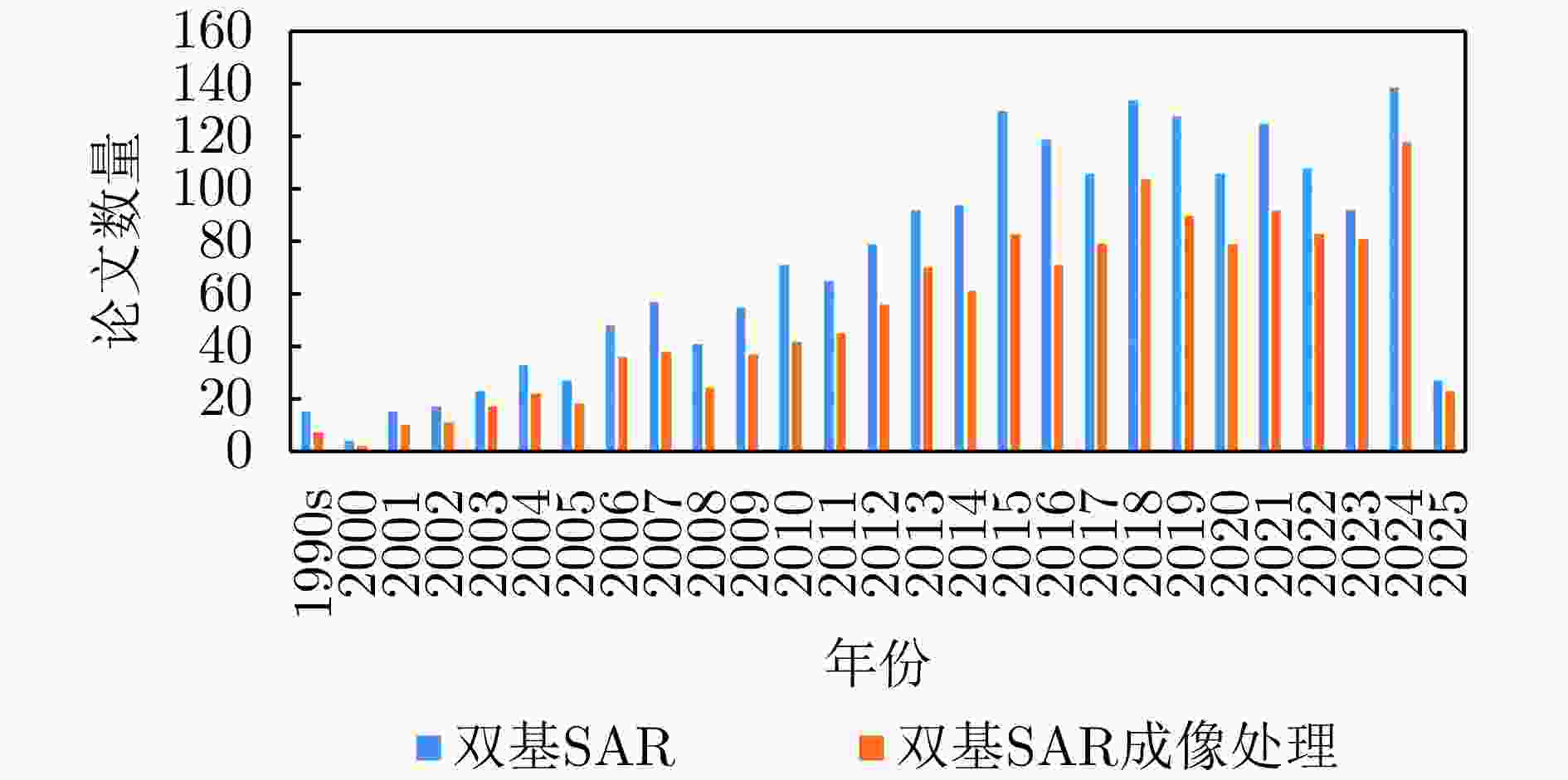
 下载:
下载:
